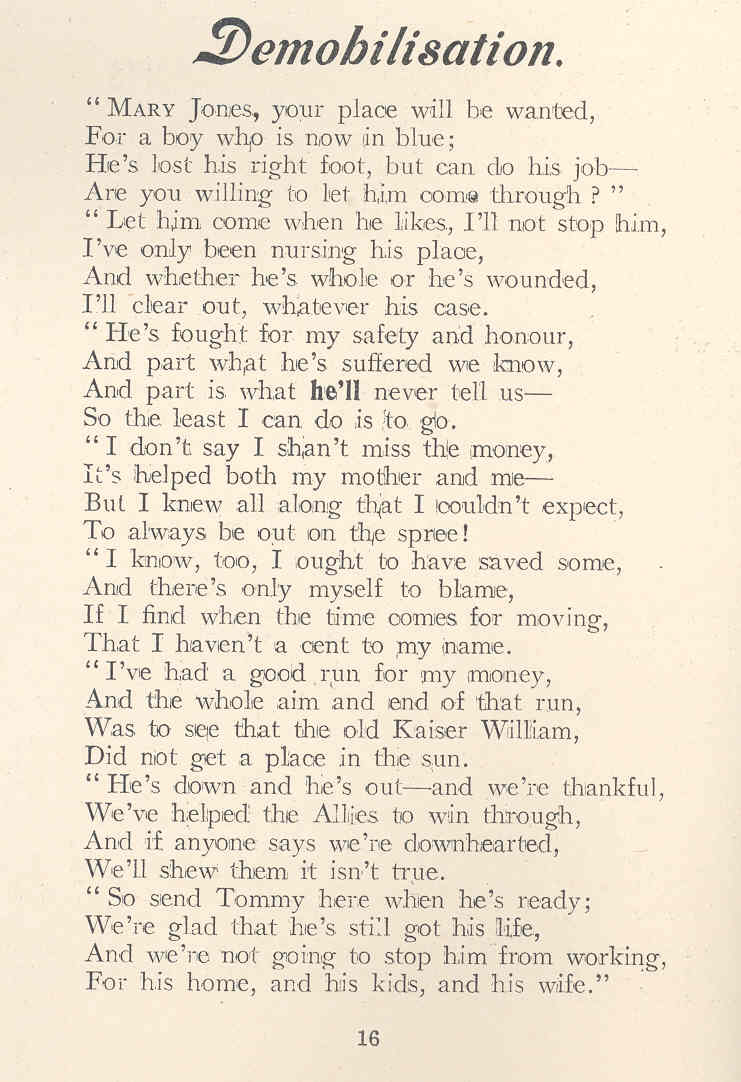Gender, History and Politics in Britain (HI253)
The Modern Records Centre holds nationally important collections for the study of political, social and economic history. Just a small selection of documents relevant to the course 'Gender, History and Politics in Britain' (HI253) are shown below in sections on 'Employment', 'Education', 'Sexuality and Morality', 'Politics' and 'The First World War'.
Other documents about the position of women prior to the Second World War are included in our digital collection on the First World War, the module resources for 'Feminism, Politics, and Social Change in Modern Britain', and the online exhibitions 'The Struggle for Equal Pay' and '"Rouse, Ye Women": The Cradley Heath Chain Makers' Strike, 1910'.
Try using our themed catalogue searches and online catalogue to find other sources.
Interested in using primary sources in your work? - find out more about using archives.
Employment
Extract from a register of enquiries and complaints relating to the working conditions of girls and women (a few men are also included), 1898-1908
The complaints relate to problems such as long or late hours, minimal breaks, uncomfortable or unsafe conditions, industrial injuries, lack of toilet facilities, and harassment from foremen or employers.
Included in the archive of the Young Women's Christian Association; document reference: MSS.243/142/1
'Women slaves of the forge', 1 September 1910
Daily Express article about Mrs Patience Round, a 79 year old chainmaker in Cradley Heath and one of many women chainmakers then striking for better pay. She describes the strike as "the week of my life", and is quoted as saying that "these are wonderful times... I never thought that I should live to assert the rights of women".
Other documents relating to the strike of women workers at Cradley Heath are included in our online exhibition 'Rouse, Ye Women'.
Included in the Trades Union Congress archive; document reference: MSS.292C/239.08/3
Information on outworkers and contractors in the lace trade, 1921
The Nottingham lace trade was a "sweated" [sweatshop] industry which partly relied on women working from home for little money. The author of this letter, R. Mee, talks about the position of outworkers [home workers] and contractors ["locally called the "lace missus""], and reminisces about his mother, who "died with clipping scissors in hand and lace over her fingers".
Included in a file on Nottingham home-workers, from the Trades Union Congress archive; document reference: MSS.292C/230.21/3
Report of the Medical Research Council Industrial Fatigue Research Board, 1928
This government report examines the question of the menstrual cycle - "its influence on mental and muscular efficiency" and "its relation to general functional activity" - to assess whether or not women were medically less suited than men to industrial work. Research was undertaken to establish whether the widely held belief "that the mental powers of women are weakened and that the co-ordination of their movements is impared during the menstrual period" was accurate.
Included in the archive of the Institute of Personnel Management; document reference: MSS.97/5/34
'Equal status in the Factories Bill', 1928
One of a series of circulars issued by the Open Door Council, an organisation that campaigned for equal economic rights for women. This circular argues that "women are not "protected" by being classed with children and young persons".
Included in a file on 'Women in industry: Protective legislation', from the archives of the Trades Union Congress; document reference: MSS.292/134.1/1
Other documents relating to the fight for equal pay and conditions are included in the online exhibition 'The Struggle for Equal Pay'.
'Marriage or career? Women civil servants divided', 1929
Copy of 'Daily Herald' coverage of a debate between female civil servants on the proposed removal of the marriage bar. The marriage bar required women to resign from their job once they got married, it was abolished in the civil service in 1946.
Included in a file on 'ITFU Women's Committee: Meeting Oct. 1929', from the archives of the Trades Union Congress; document reference: MSS.292/62.14/5
Leaflet for the Over Thirty Association, undated [1930s?]
The Association was formed to provide support for older, unemployed women workers (i.e. those over the age of 30). It identified age discrimination as being a particular problem for women.
Included in a file on 'Women in Industry: Over 30-40 Association; document reference: MSS.292/134.6/2
'Female nursing in male wards of mental hospitals: The position in London', undated [c.1936]
Leaflet issued by the London District Council of the Mental Hospital and Institutional Workers' Union. It contributes to the debate about whether it was suitable for female nurses to be employed in male wards of mental hospitals.
Included in a file on 'Health: Nurses', from the archives of the Trades Union Congress; document reference: MSS.292/842.92/4
Education
'Women we are, and women we wish to be, but -', 1884
Article by Miss Constance Maynard, Principal of the Ladies' College, Hampstead, from 'Our Own Gazette', the magazine of the Young Women's Christian Association. Miss Maynard writes on the need for education to broaden the outlook and comments on the unavailability of a university education to women.
Included in the archive of the YWCA; document reference: MSS.243/5/1
'To the working women of Great Britain', 1920s
Workers' Educational Association leaflet outlining "what women want to know" about educational opportunities and explaining how the WEA can help, as "the difficulties which face the working woman may be greater than those of the working man, but education can mean just as much to her, and her need for it is no less great".
Included in a file on the WEA, from the records of the Trades Union Congress; document reference: MSS.292/814.11/1
Preliminary notice of a summer school for magistrates and citizens, 1925
The school was run by the National Union of Societies for Equal Citizenship, and was held at St Hilda's, Oxford (then a hall for women). It was intended for both male and female magistrates, and covered subjects such as the status of women, the administration of justice, problems of interest to social workers, international affairs and party politics.
Included in a file on 'Women: Political Rights', from the archives of the Trades Union Congress; document reference: MSS.292/822/1
'Adult education in the countryside', 1927
Extract from a paper by Grace E. Hadow, Honorary Secretary of Oxfordshire Rural Community Council, published by the National Union of Teachers. In this section, she comments on the educational work of the National Federation of Women's Institutes, particularly their teaching of handicrafts and literature.
Included in a file on 'Education: Adult', from the archives of the Trades Union Congress; document reference: MSS.292/815.4/1
Press cuttings reporting a speech by the President of the National Association of Schoolmasters, 1927
The attitude of the NAS towards the employment of women as teachers can be identified through headlines such as "Sex War in Schools: Mistresses rulers of boys a calamity", "Can women train boys? Not in manliness says a master", and "Girls who become teachers: Suggestion that it is "to keep them out of the temptations of city life"".
Included in the records of the National Association of Schoolmasters; document reference: MSS.38A/7/1
Information regarding a short course for unemployed women at Hillcroft Residential College for Working Women, Surbiton, 1933
The courses were intended to be "mentally and physically beneficial", and "may possibly lead to new ideas for work". Most classes were either in handicrafts, the arts or physical education.
Included in a file on 'Hillcroft College', from the archives of the Trades Union Congress; document reference: MSS.292/813.4/3
School syllabuses for two mixed schools in the London area, c.1934
The syllabuses show the amount of time spent teaching different subjects to boys and girls. In several cases the amount of time dedicated to a subject (for example maths) varies according to gender. Some subjects are also gender-specific - for example domestic science, needlecraft and typing for girls, handicraft (e.g. woodwood and metalwork) for boys.
Included in the archives of the National Union of Teachers; document reference: MSS.179/EDU/3/11/1835B/2
Sexuality and Morality
'A Guide to all Institutions Existing for the Benefit of Women and Children': Part III. 'Associations and Homes for Penitents, Homes for Inebriates', 1879
Extract from a guide produced by the Young Women's Christian Association (YWCA) to institutions that will provide a Christian "care of friendless girls" and reformation for "women who have fallen into sin".
Included in the archive of the Young Women's Christian Association; document reference: MSS.243/14/22/1
'The State and Sexual Morality', 1920
Report of a Committee of Inquiry (linked to the Association for Moral and Social Hygiene) into the effects of state legislation on sexual morality, particularly regarding the status of women, the birth rate, general health and "commercialised vice". Members of the committee were from a variety of organisations, including various women's political, religious and medical groups. The introduction (part of which is reproduced here) looks at the reasons for the increased interest in this subject, including the rise of the women's suffrage movement and the First World War.
Included in the archive of the Institute of Personnel Management; document reference: MSS.97/5/24
'The Bastardy Bill, 1920'
Leaflet from the National Council for the Unmarried Mother and Her Child in support of the proposed legislation. The organisation argued that the Bill would help to "increase the responsibility of fatherhood", "assist the helpless mother" and "save the child".
Included in the archive of the Young Women's Christian Association; document reference: MSS.243/56
'To our men comrades', c.1928
Leaflet from the Workers' Birth Control Group, demanding that information on birth control should be made available to working mothers through maternity and welfare centres. The leaflet emphasises the risks of childbirth (e.g. four times more women died from childbirth than men killed in mining accidents) and the strain of continual pregnancies.
From the archive of the Trades Union Congress, document reference: MSS.292/824/1
Other documents relating to birth control and parenting are included in the online exhibition 'Advice to Mothers'.
'Some present day facts about 'Birth Control'', [c.1929]
Pamphlet by Elizabeth Everett, published by the League of National Life ("to oppose birth prevention, the menace to Nation and Empire"). This extract puts forward several reasons why birth control measures should be opposed, including concerns about the effects on "the race" if "family limitation" is mostly practised by the "skilled and professional classes", and the risks of a likely "excess of sex indulgence". The pamphlet was sent to the Trades Union Congress after birth control advertisements were printed in the TUC controlled newspaper 'The Daily Herald'.
Included in a file on 'Daily Herald: Advertisements', from the archive of the TUC; document reference: MSS.292/790.4/1
Letter about the representation of women in the 'Daily Herald', 1933
Sent anonymously to Walter Citrine, General Secretary of the Trades Union Congress. It complains about the "now regular supply of pictures of half-naked women and girls", and contrasts it with the lack of coverage given to "the Labour Party's nation-wide Women's Campaign".
Included in a file on 'Daily Herald: complaints - news', from the records of the TUC; document reference: MSS.292/790.3/1
Summaries of films circulated by the British Social Hygiene Council, [c.1937]
These examples summarise "Test for Love", a 1937 film on venereal disease (VD) and the perils of casual sex, and "The Gift of Life", a "clean scientific" explanation of "the biology of reproduction" - from the division of amoeba to human reproduction. Other summaries in the same file focus on moral behaviour, the dangers of VD, the physiology of the reproductive system, and "race preservation".
Included in a file on the British Social Hygiene Council, from the archives of the Trades Union Congress; document reference: MSS.292/844.1/5
Politics
Song sheet sold by the East London Federation of the Suffragettes, undated
The ELFS was formed by Sylvia Pankhurst in 1912. It was an organisation of mostly working class women and campaigned for many left-wing policies in addition to universal suffrage.
From the papers of Aaron Rapoport Rollin, document reference: MSS.240/R/5/5/4
First issue of 'The Catholic Suffragist', journal of the Catholic Women's Suffrage Society, 15 January 1915
The front page contains an article by Alice Meynell, explaining the principles of the society and why it was thought necessary to produce "a new paper dedicated to the cause of Votes for Women" at a time of war.
From the 'Miscellaneous series' of records, document reference: MSS.21/1822
'Objections to women's suffrage stated and answered', 1916
This is one of two speeches in favour of women's suffrage, included in the papers of Leslie Scott, a Conservative MP for Liverpool. This speech (probably delivered by Scott) attempts to answer, one by one, each argument against women's political enfranchisement. It suggests that "many of these are the result of prejudice, short-sightedness and the general opposition of people to new ideas and forms of government".
Included in the papers of Sir Leslie Scott; document reference: MSS.119/3/S/LI/9
'Labour Keeps its Promises to the Women. But what is the Tory record?', 1923
One of several Labour Party leaflets aimed at the new woman voter. It contrasts Labour's support for the extension of the franchise to all adult women with the Conservative Party's "fear [of] the young women's vote", and tries to position the Labour Party as "the women's party".
Included in the archives of the Iron and Steel Trades Confederation, document reference: MSS.36/L41/4/18
'To Women. Socialism Destroys Marriage', 1925
Leaflet for women voters issued by Billy Preston, the Unionist Party candidate in the 1925 Walsall Parliamentary Bye-election. Eight years after the Russian Revolution, it plays on contemporary fears that socialists in the Labour Party were secretly intending to foment a Bolshevik revolution and destroy family life.
Included in the archives of the Iron and Steel Trades Confederation, document reference: MSS.36/L41/3/36
'To working women', undated [1920s]
Pages from an anti-temperance leaflet aimed at women voters. It suggests that the readers should give "teetotal fanatics" "a bit of your mind!", and concludes "don't vote for any candidate until you have made sure that he will oppose Local "Option"". The temperance movement had strong links with female social reformers and activists (the maiden speech of Lady Astor, the first female MP to take her seat in the House of Commons, was about the problem of the liquor trade). This leaflet was produced by the brewing trade as part of their attempt to mobilise women in support of the pro-alcohol lobby.
Included in the archives of the Brewers' Society; document reference: MSS.420/BS/7/12/10
'Women and the political situation', 28 September 1931
Statement prepared by the Standing Joint Committee of Industrial Women's Organisations for the Executive Committee of the Labour Party. It opposes the new National Government and provides advice on how Labour could appeal to women voters.
Included in a file on the "Financial Crisis 1931", from the records of the Trades Union Congress; MSS.292/420/2
'Women candidates', undated [late 1930s / early 1940s]
Memorandum of the Standing Joint Committee of Working Women's Organisations on women candidates at parliamentary elections. It includes views on the question "does a woman poll fewer votes than a man?".
Included in a file on 'Women: Political Rights', from the archives of the Trades Union Congress; document reference: MSS.292/822/1
The First World War
'Patriotism of Women: Lord Kitchener's appeal', [1914]
Leaflet published by the League of Honour, an organisation "for women and girls of the British Empire" during time of war. It asks women to show their patriotism by abstaining from alcohol and acting as a good influence on soldiers on leave.
Included in the archive of the Young Women's Christian Association; document reference: MSS.243/64/49
Letter from the Barrow branch of the Federation of Sailmakers, 22 June 1916
The author asks for advice on how to stop the introduction of "females" into the sailroom. The women workers are seen as "cheap labour", undercutting the wages of the men.
From the records of the Federation of Sailmakers of Great Britain and Ireland; document reference: MSS.87/3/11/18
'British Policewomen', 1916
This article on the Women's Police Service, a volunteer group linked with the Women's Social and Political Union, is from 'Our Outlook', August - September 1916, the magazine of the Young Women's Christian Association. The outbreak of war in 1914 saw the formation of several female volunteer police forces, partly in response to concerns about the behaviour of young women. By the end of 1918 the first women were recruited by the Metropolitan Police Force.
Included in the archive of the YWCA; document reference: MSS.243/8/10
On "the effect of the present world crisis upon the womanhood and girlhood of the nations", 1 February 1917
Circular letter from the President of the World's Young Women's Christian Association (2 of the 4 pages are reproduced here). It commends the "new gift of freedom" given to women by the war, but expresses concern that there may be a negative side due to alterations in "the mental and moral attitude of many girls".
Included in the archive of the Young Women's Christian Association; document reference: MSS.243/14/23/3
Letter from Helen Haslam, aged 19, describing her arrival in France, 20 October 1917
Helen Haslam worked as a Young Men's Christian Association administrator at YMCA headquarters, Abbeville Area, British Expeditionary Force. The Modern Records Centre holds a series of vivid letters that she wrote to her old schoolfriend Marjory Gill from France and the United States of America.
From a file relating to Helen Haslam, included in the papers of Lady Allen of Hurtwood; document reference: MSS.121/F/3/8/1-45 (this item: MSS.121/F/3/8/7)
'May we have Huts too?', 1918
Leaflet from the Young Women's Christian Association (YWCA). It promotes a "national appeal for £183,000 to provide clubs, huts and hostels for the army of 1,421,000 girl and women war workers" in both Britain and France. The intention was to provide safe and supportive social centres where women, often living away from home for the first time, could socialise in "a happy wholesome environment ... under proper supervision".
Included in the archive of the Young Women's Christian Association; document reference: MSS.243/14/22/4
Photographs of female munitions workers, Sheffield, [1918-1919]
Photos of shell cap machinists and toolsetters from the February 1919 edition of 'The Bombshell', the in-house journal of Thomas Firth and Sons Limited, a Sheffield steel manufacturer which produced munitions during the First World War.
Included in the archive of the Institute of Personnel Management; document reference: MSS.97/5/37/1
'Demobilisation', January 1919
Poem included in 'The Bombshell', the journal of Thomas Firth & Sons Ltd, Sheffield. It comments on the replacement of women workers with men returning from the forces. The October 1919 issue of 'The Bombshell' (not shown here) includes a report on a ceremony to mark the leaving of the last of the "female substitutes".
Included in the archive of the Institute of Personnel Management; document reference: MSS.97/5/37/1
Additional documents relating to the experiences of women during the First World War are included in the online exhibition First World War 100: conflict and commemoration.

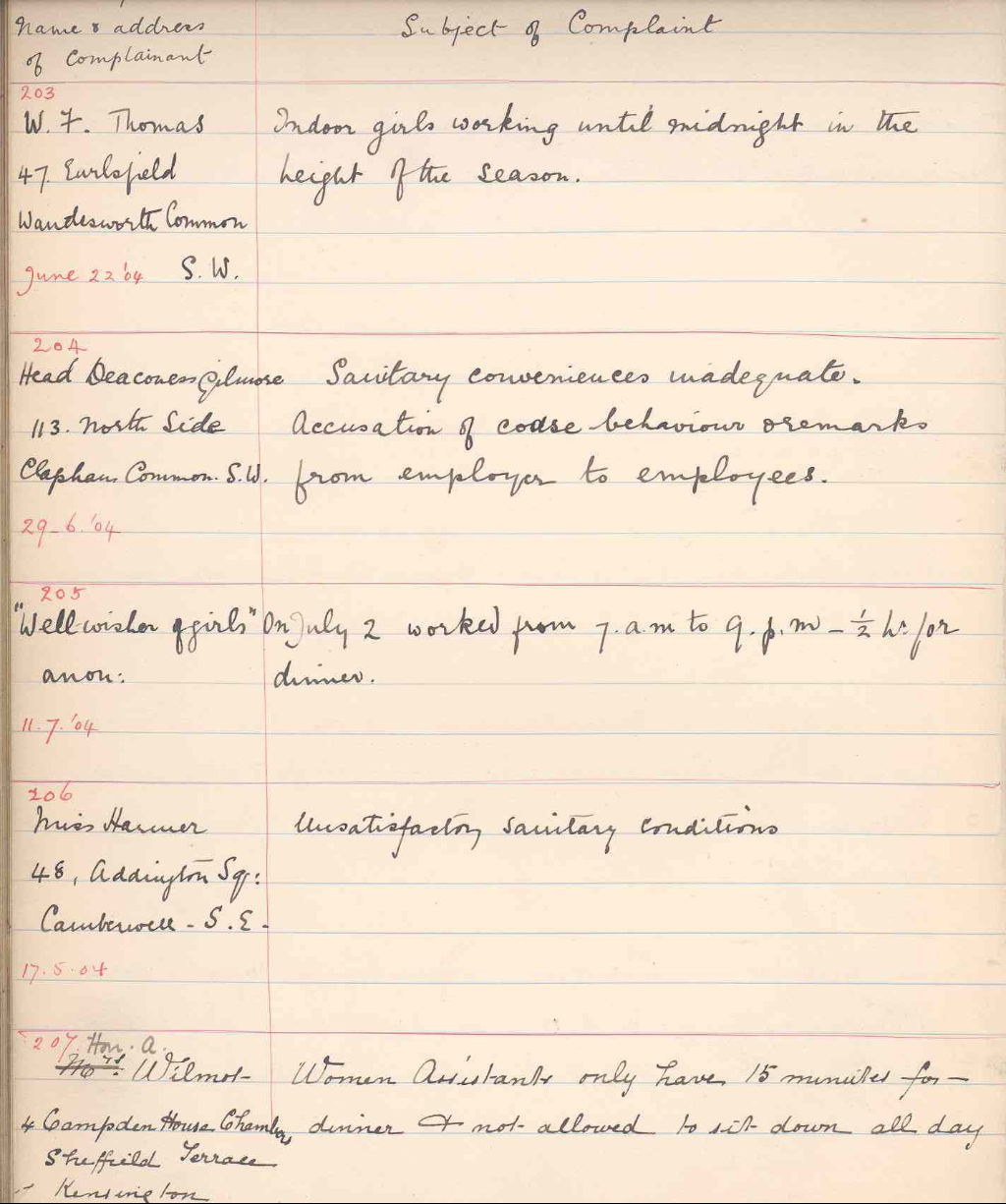
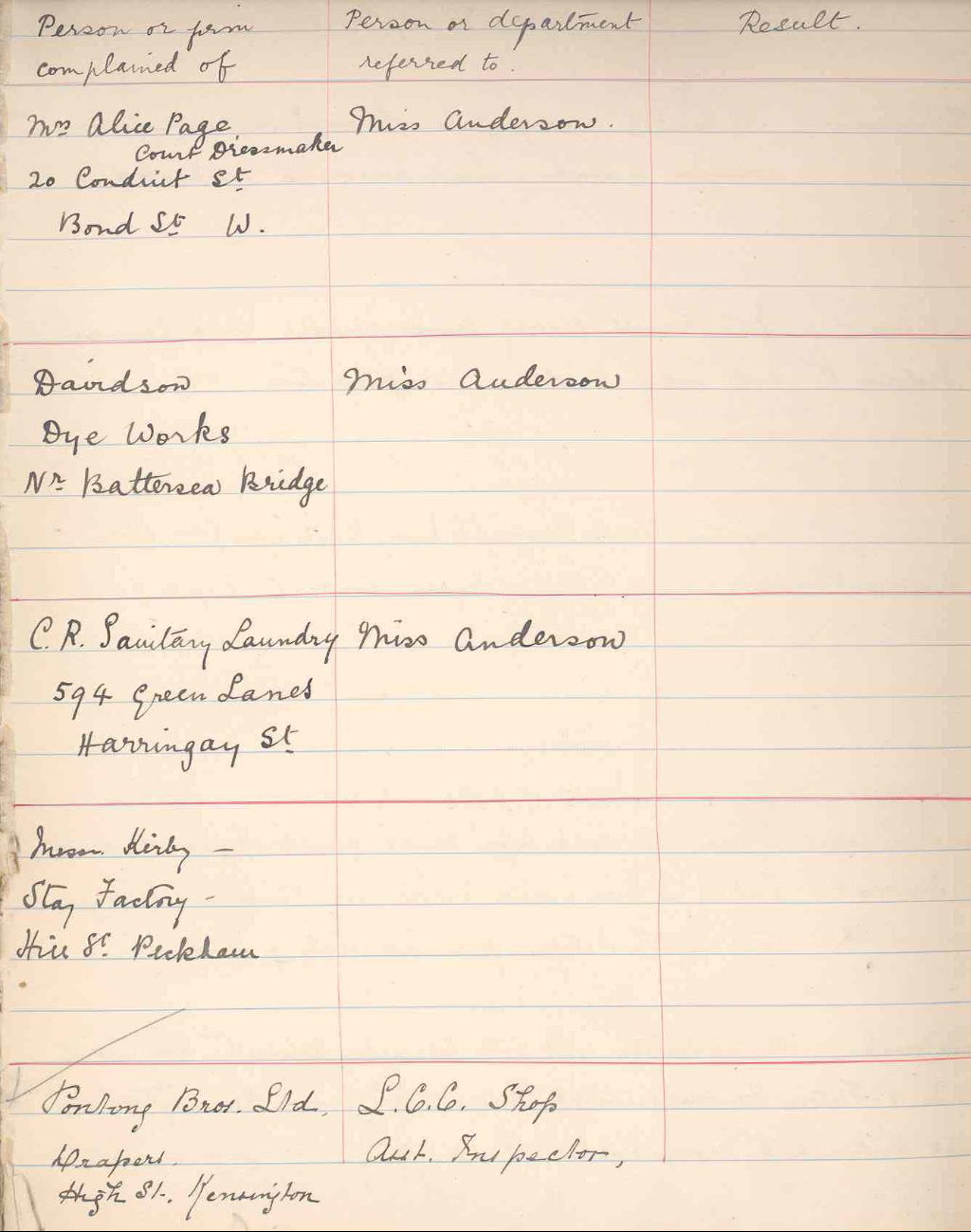
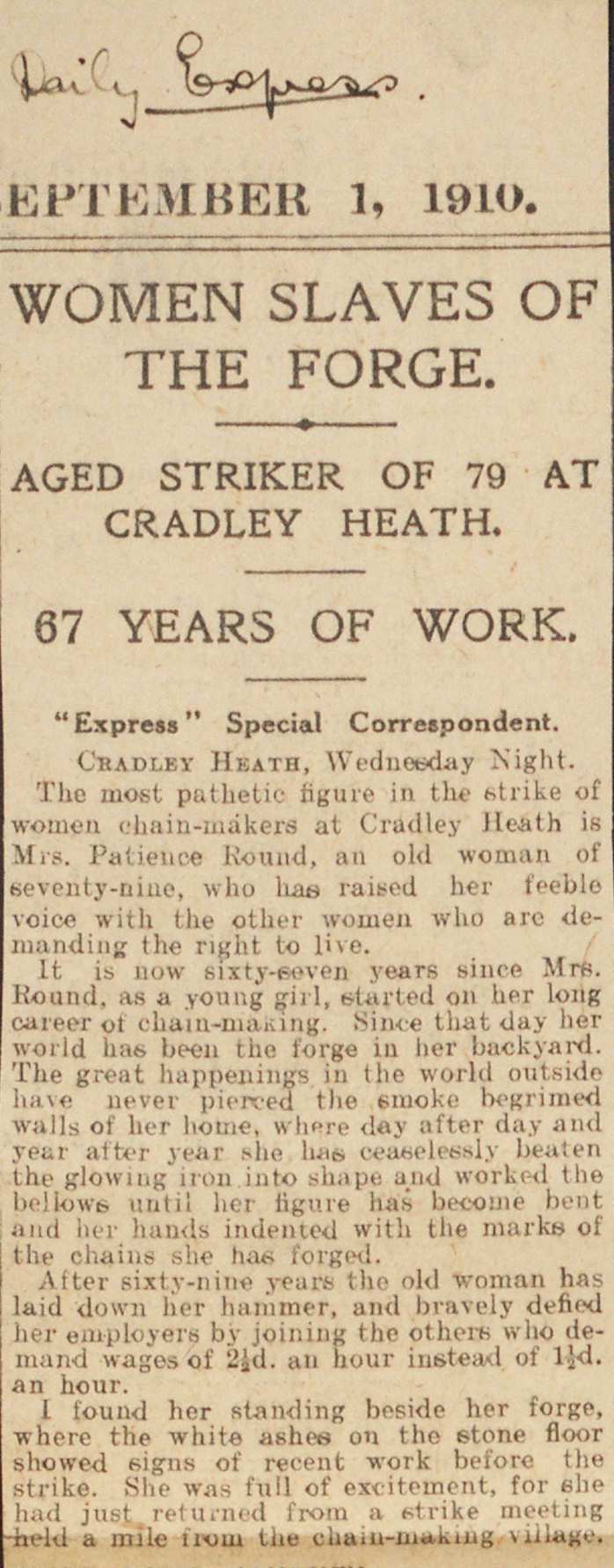
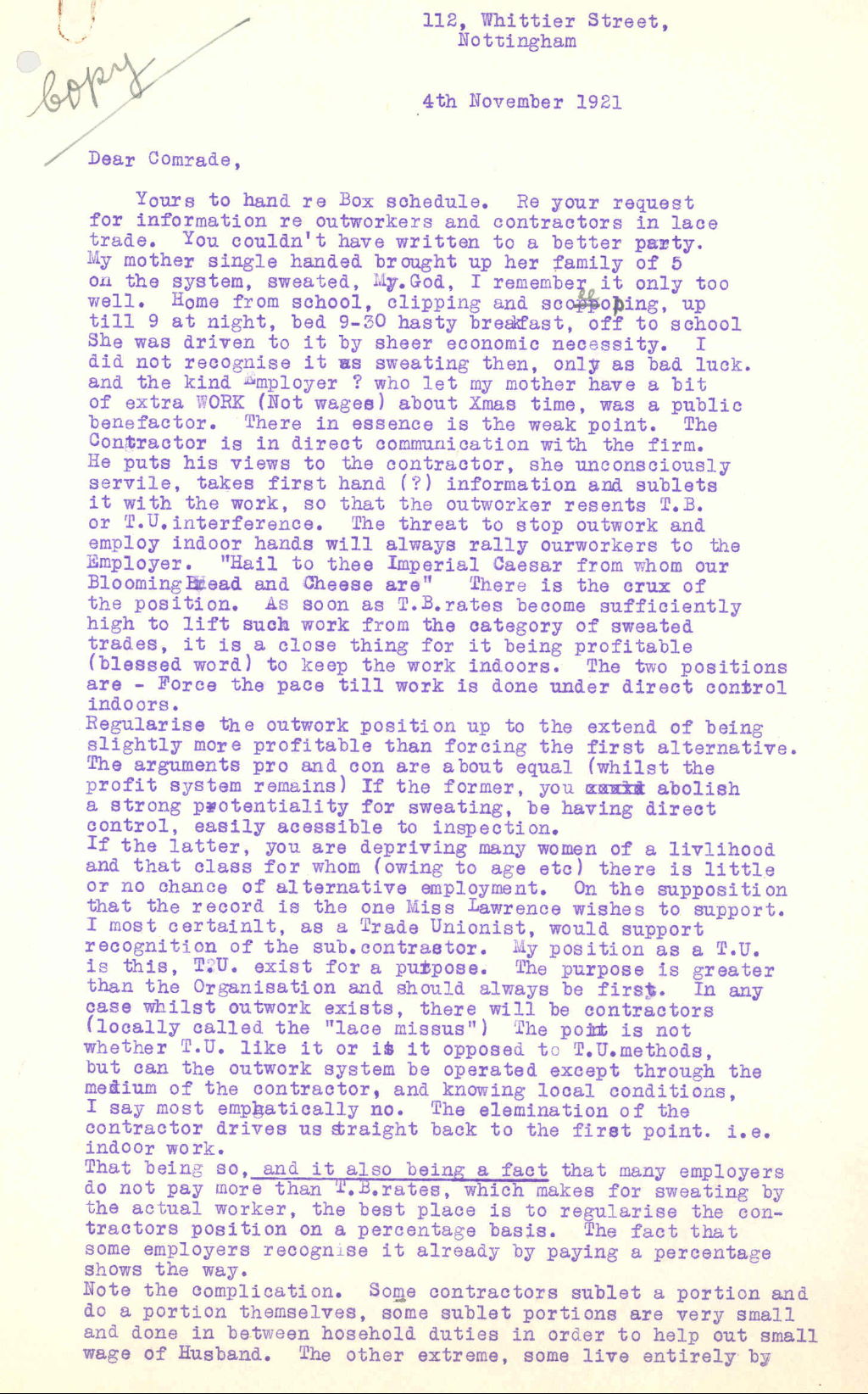
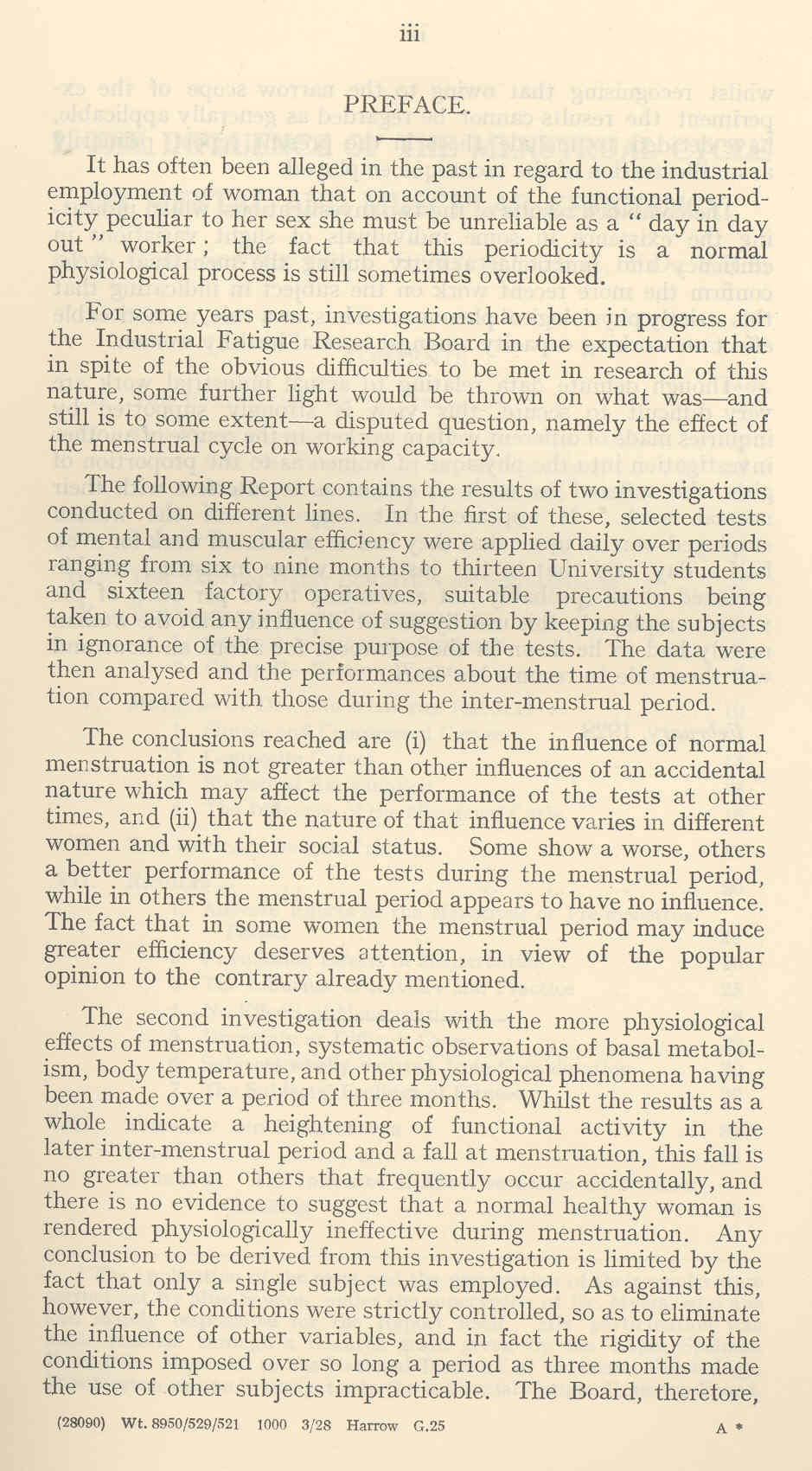
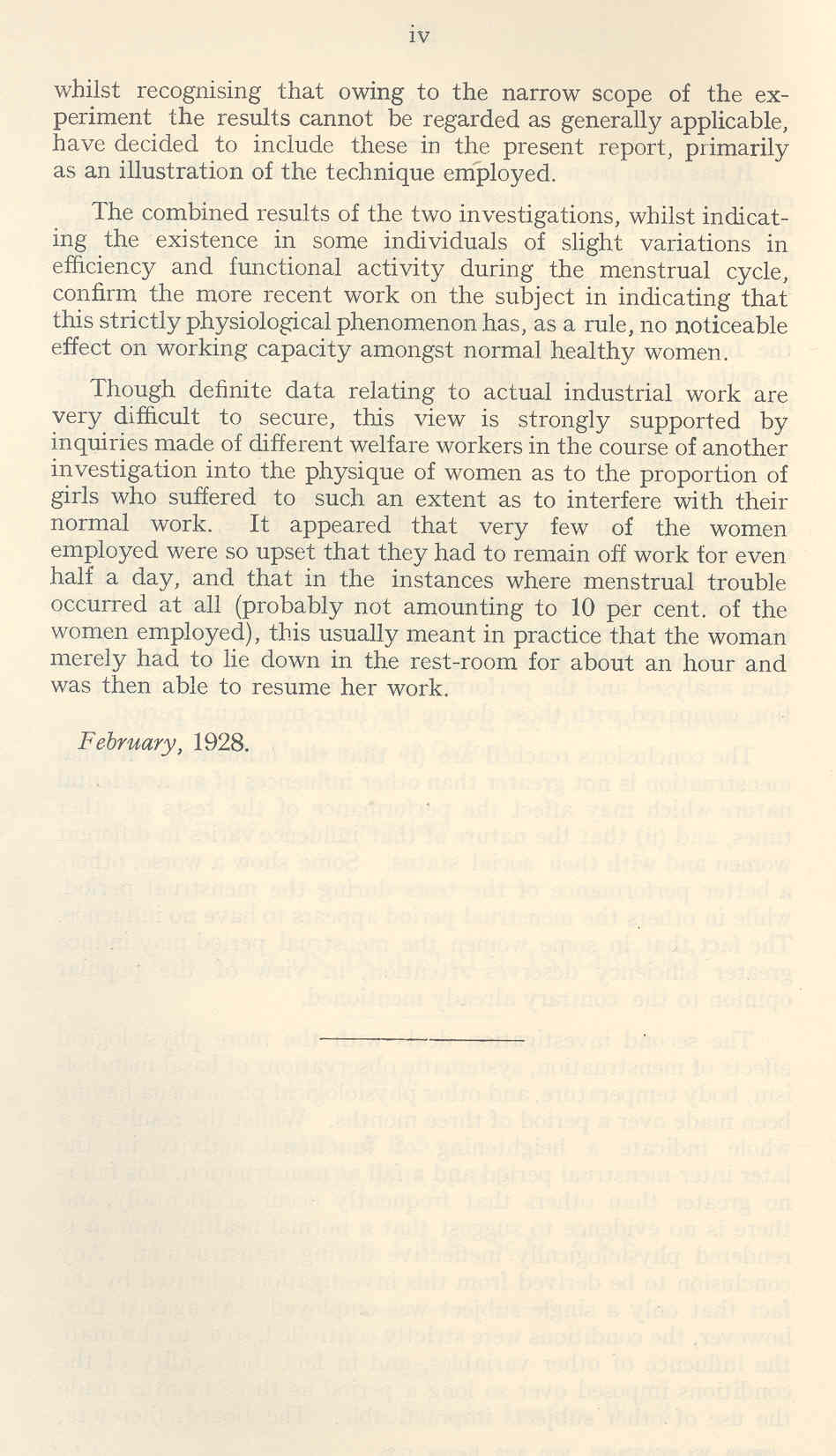
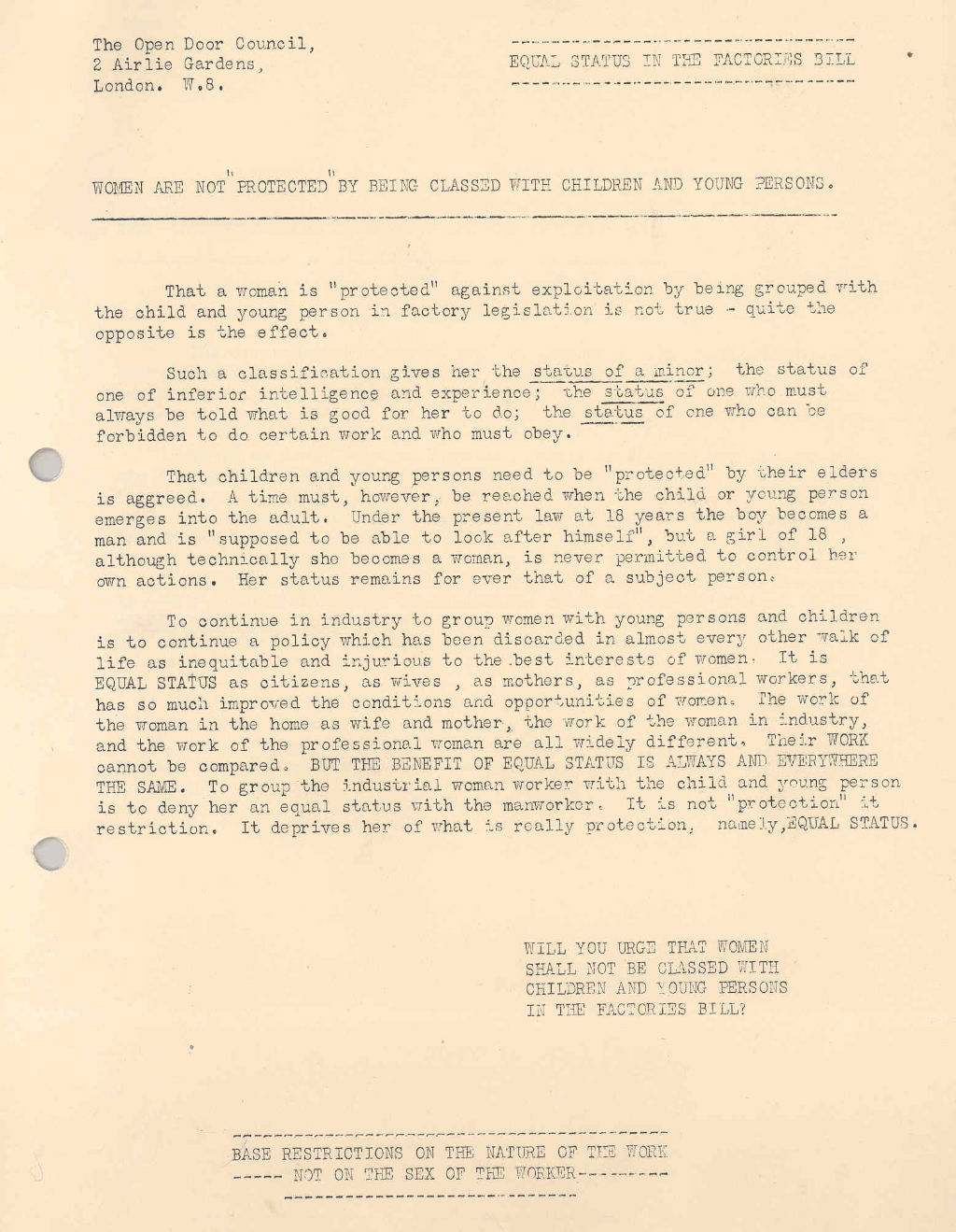
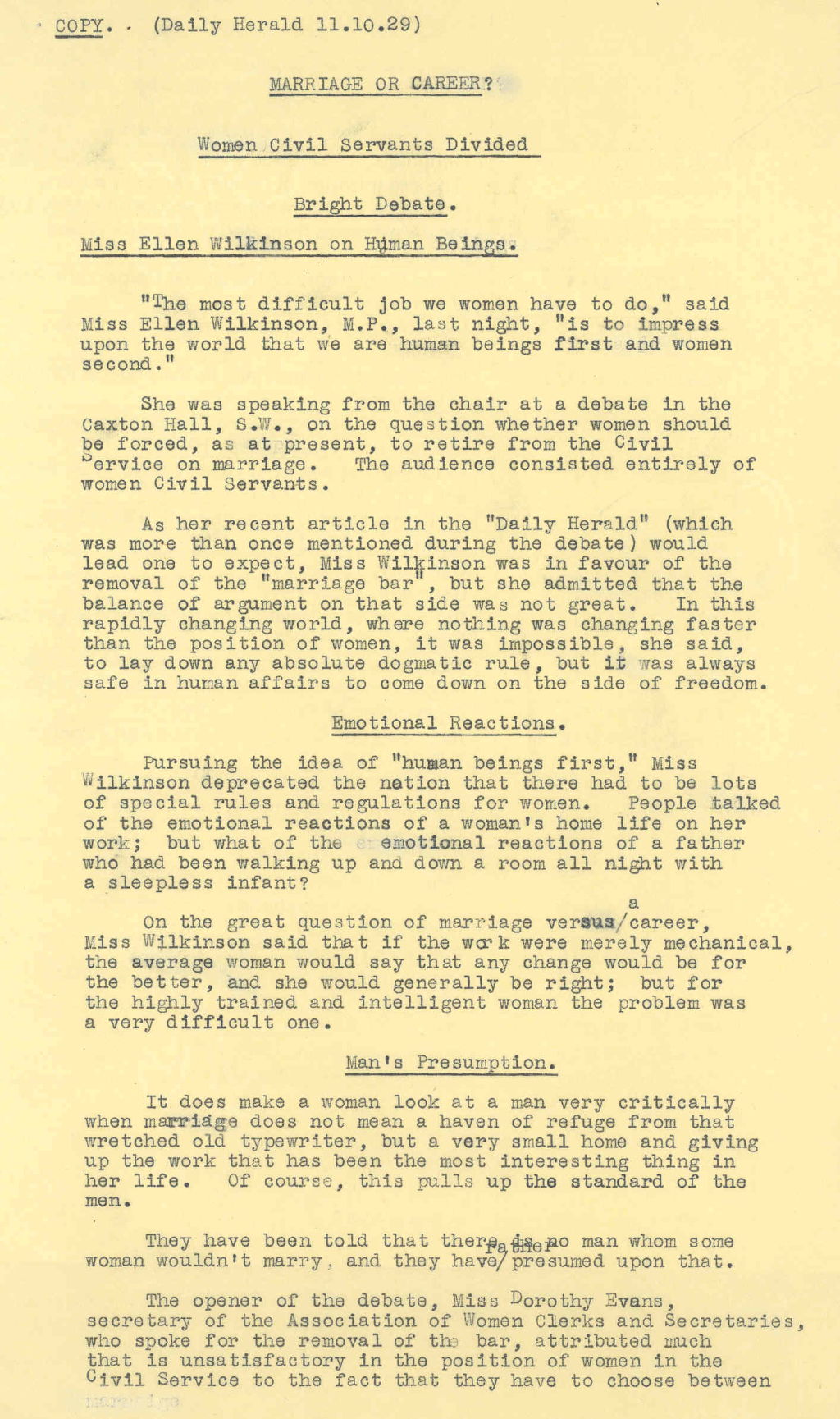
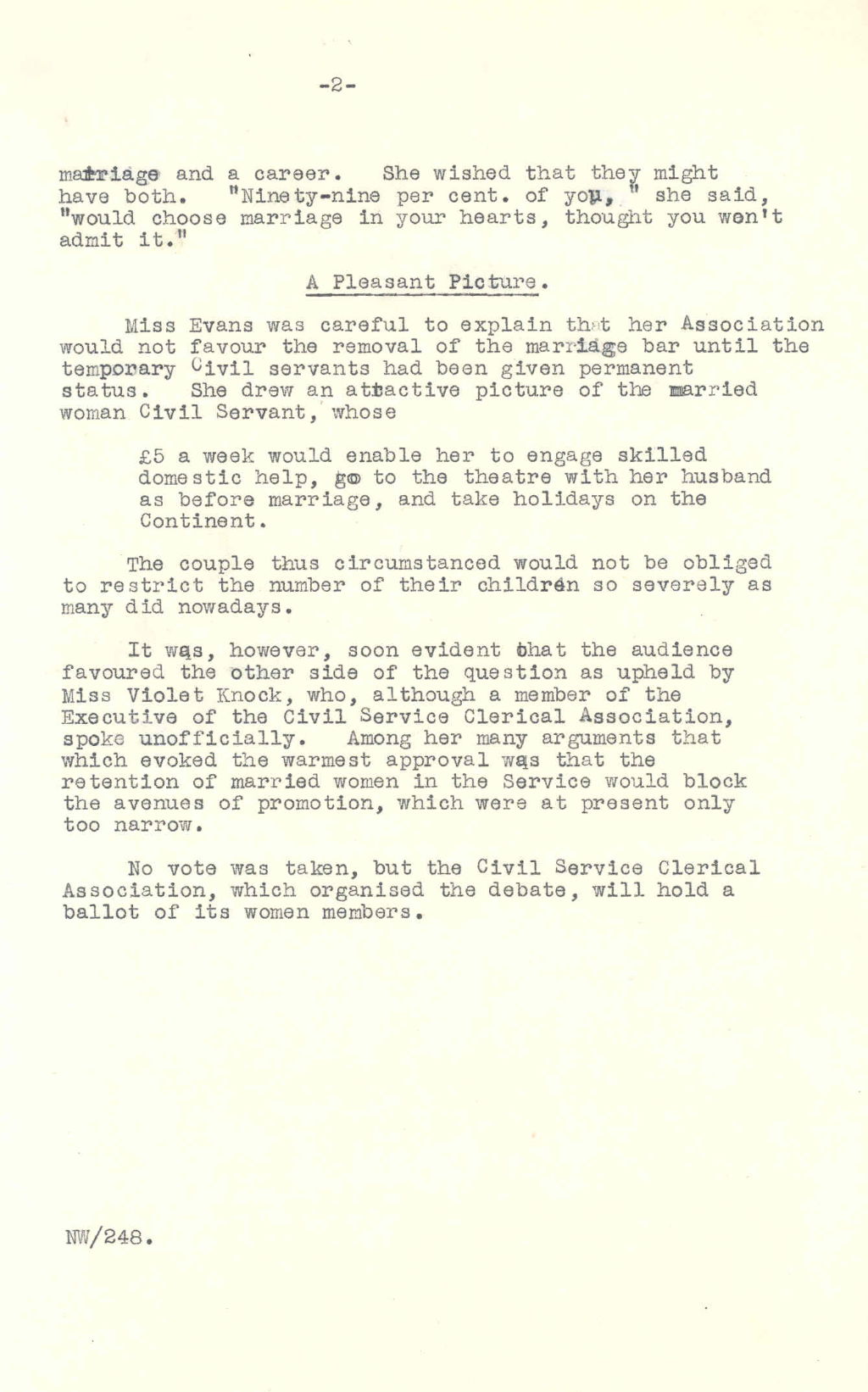
![Leaflet for the Over Thirty Association, undated [1930s?]](134.6-2ii.jpg?)
![Leaflet for the Over Thirty Association, undated [1930s?]](134.6-2iii.jpg?)
!['Female nursing in male wards of mental hospitals: The position in London', undated [c.1936]](842.92-4_1.jpg?)
!['Female nursing in male wards of mental hospitals: The position in London', undated [c.1936]](842.92-4_2.jpg?)
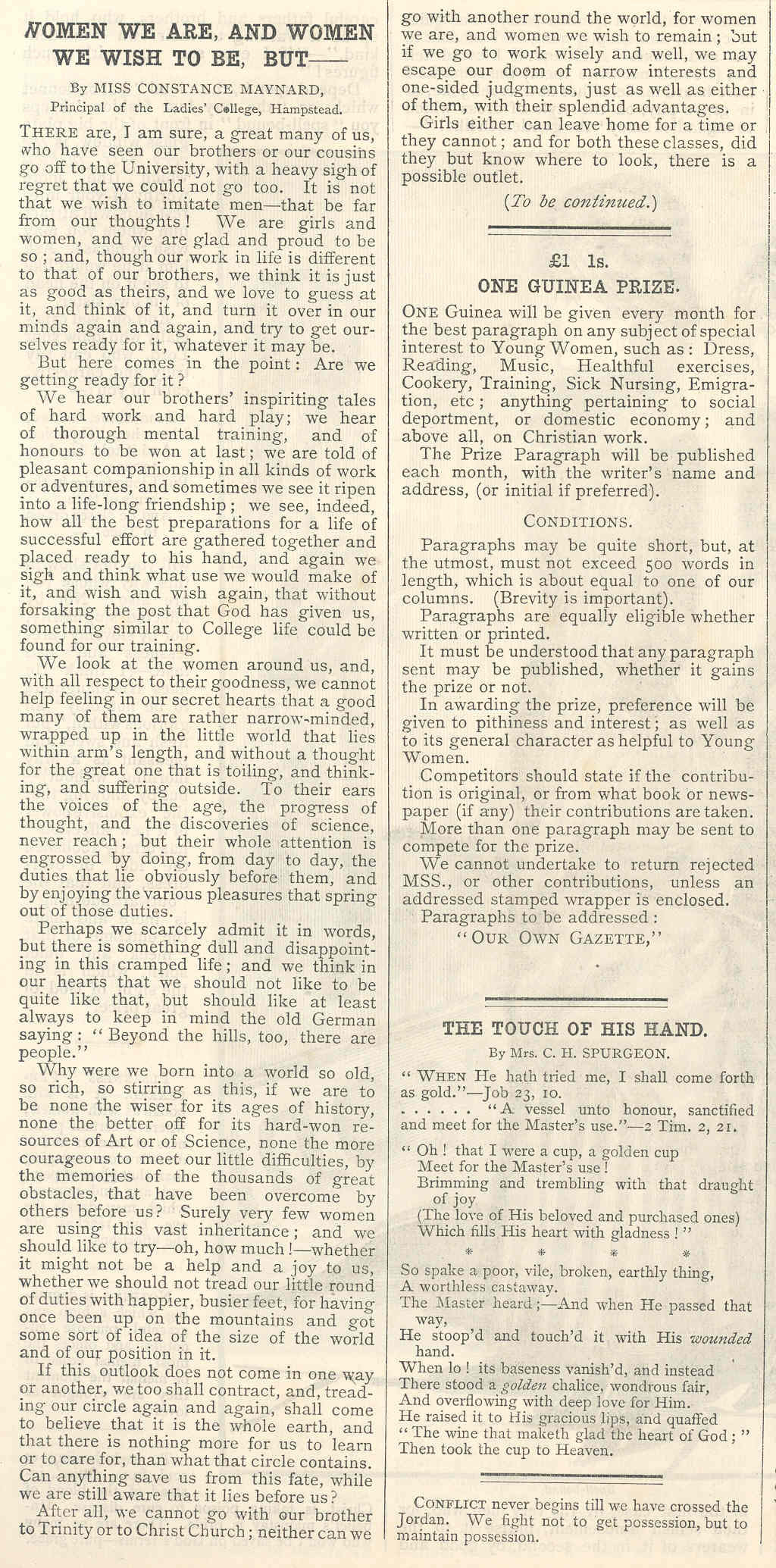
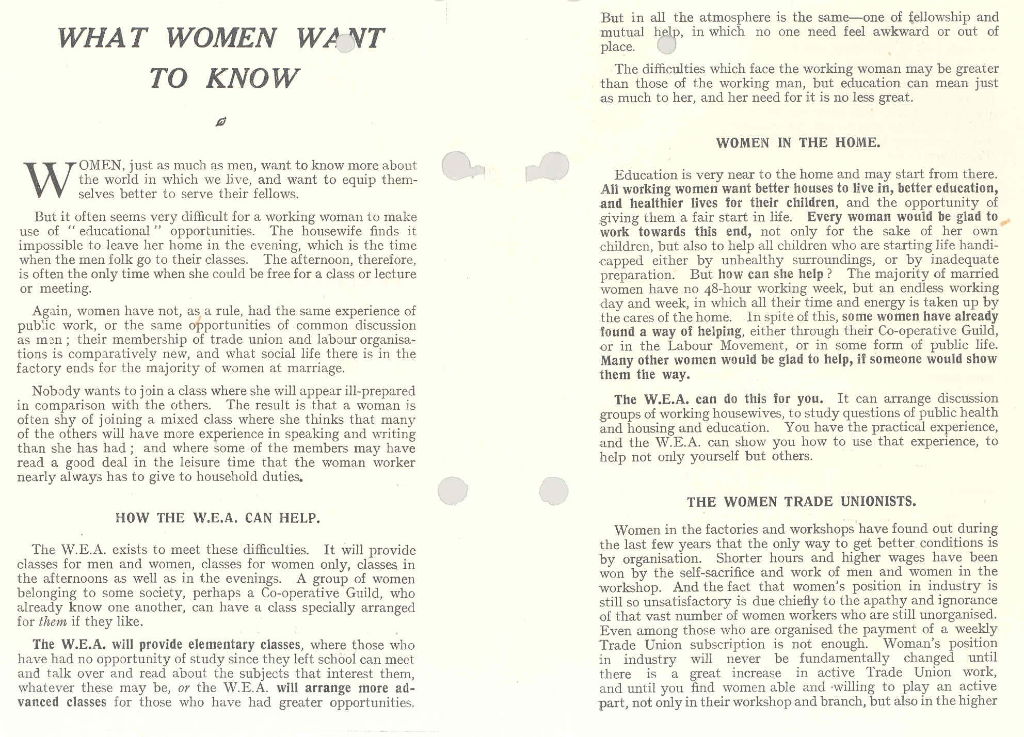
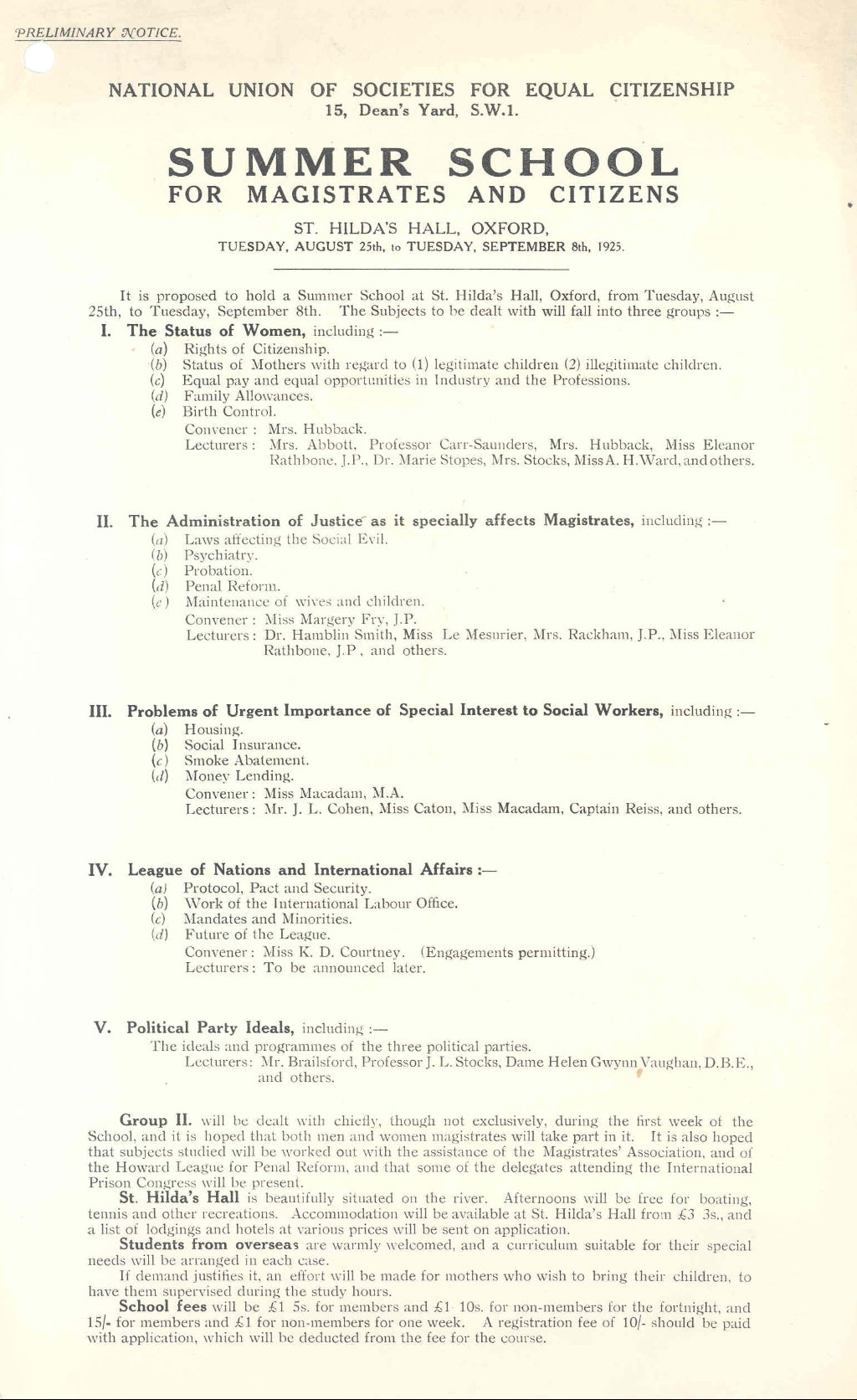
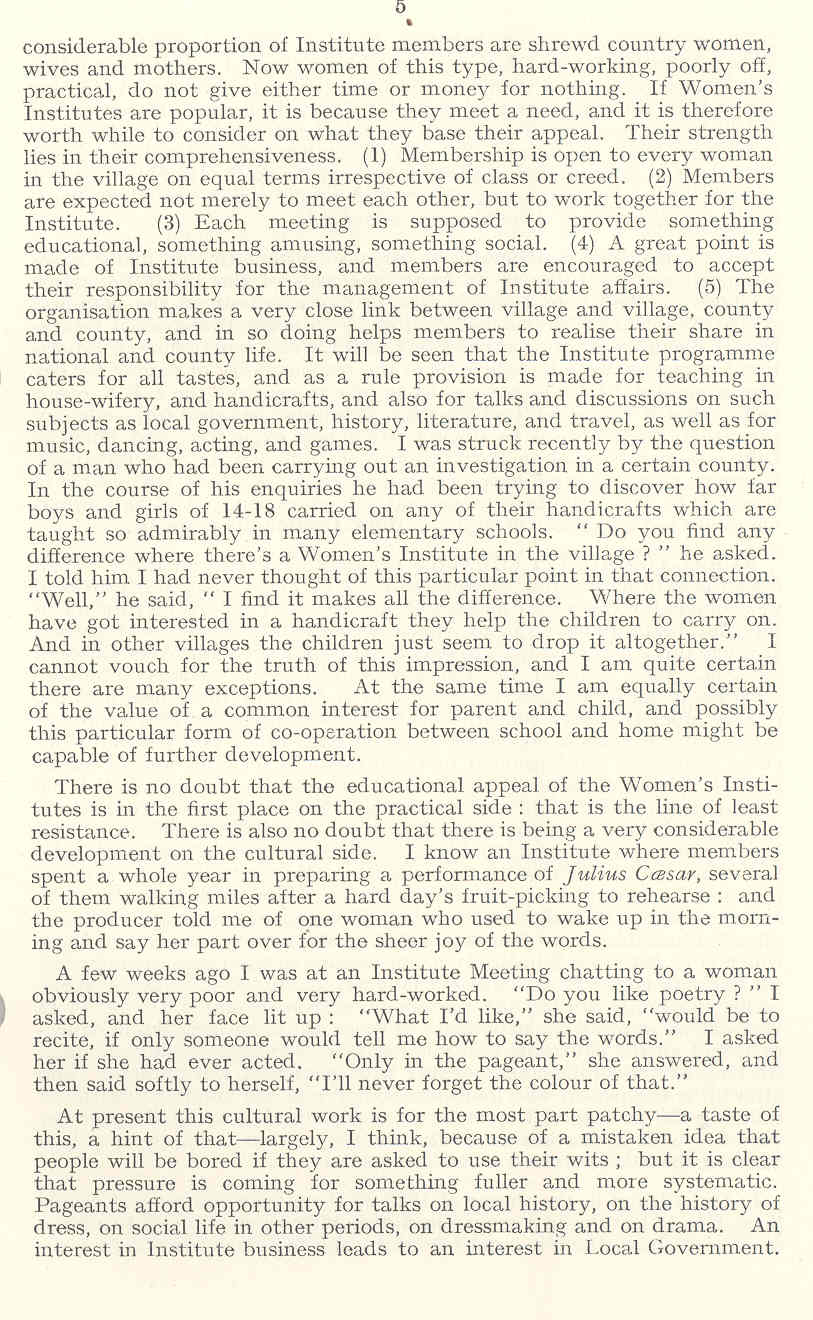
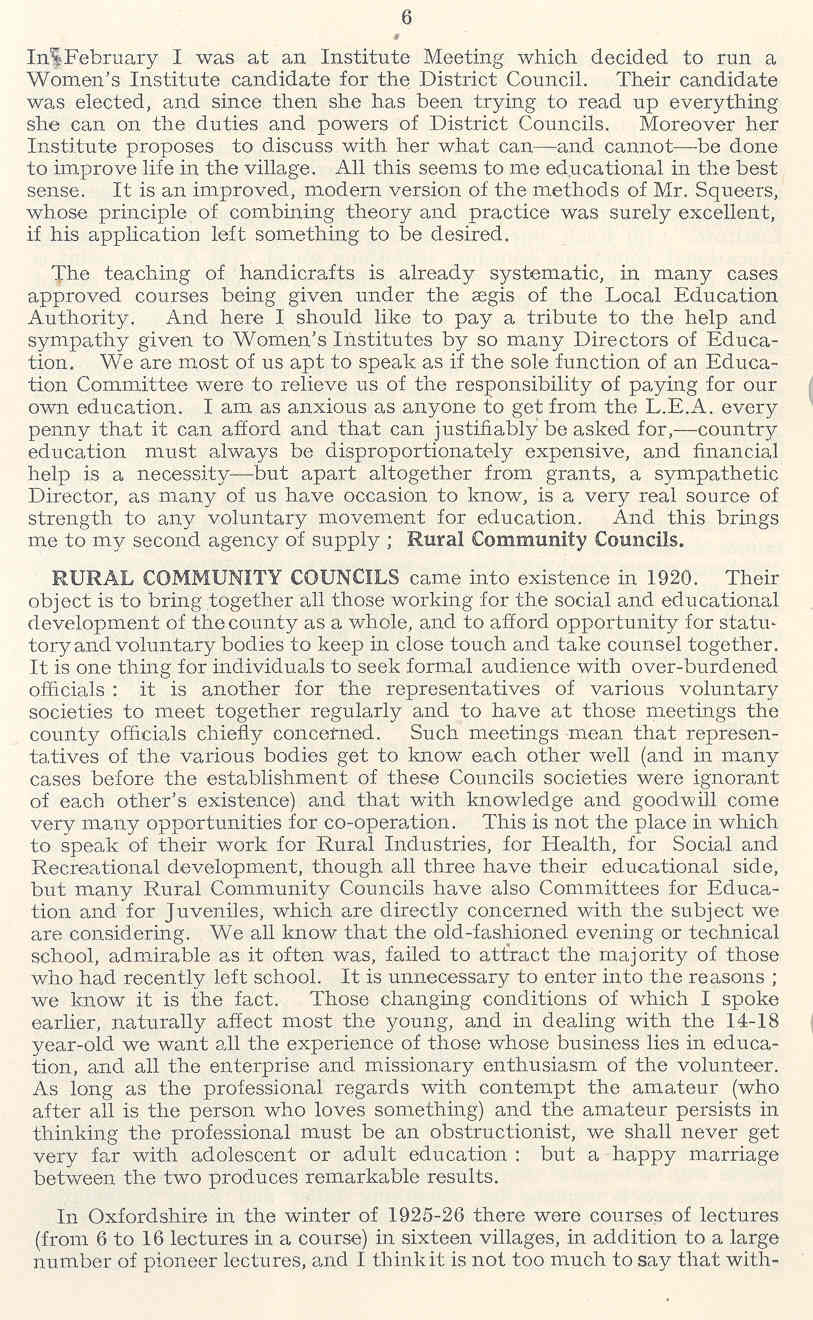
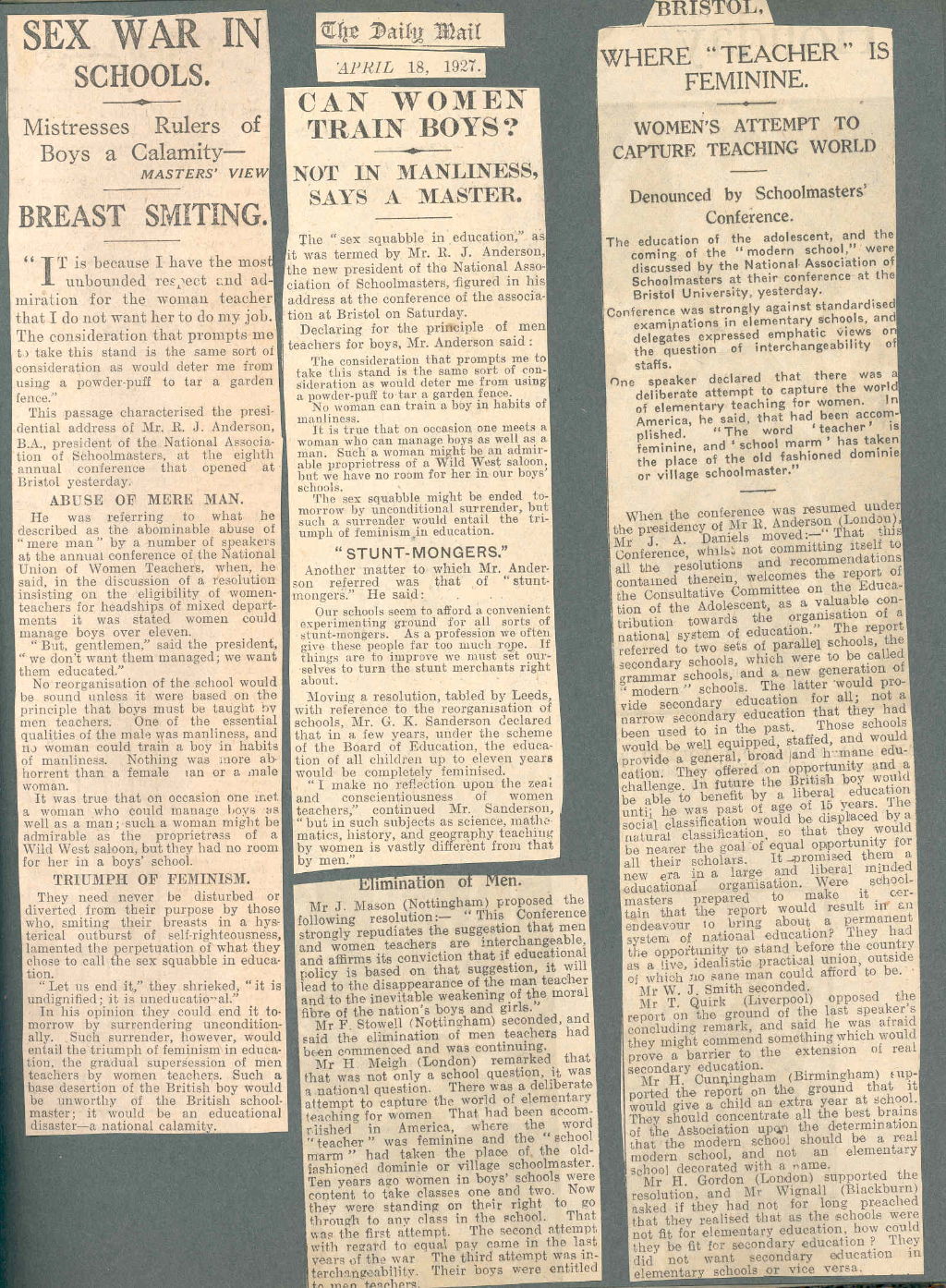
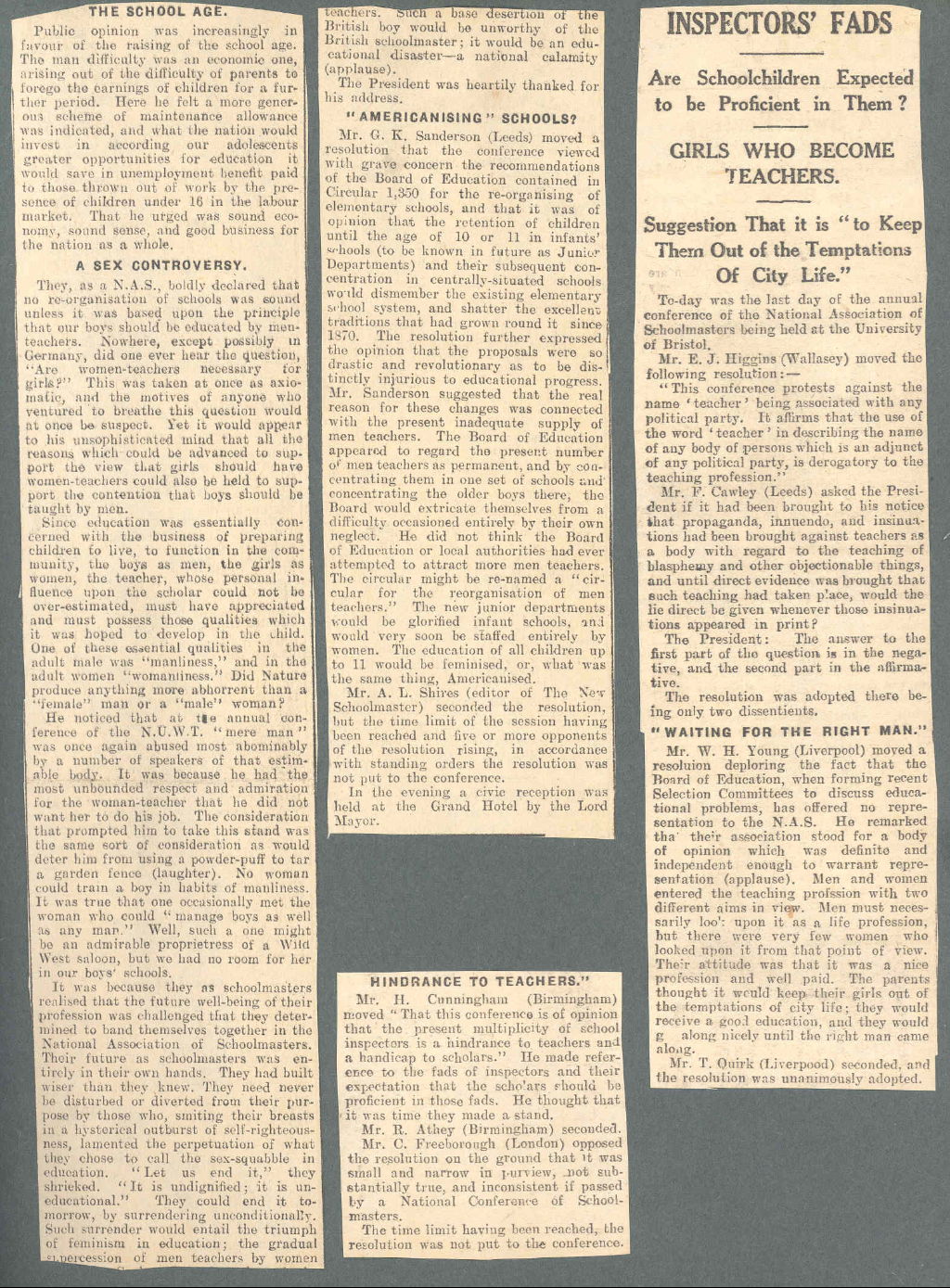
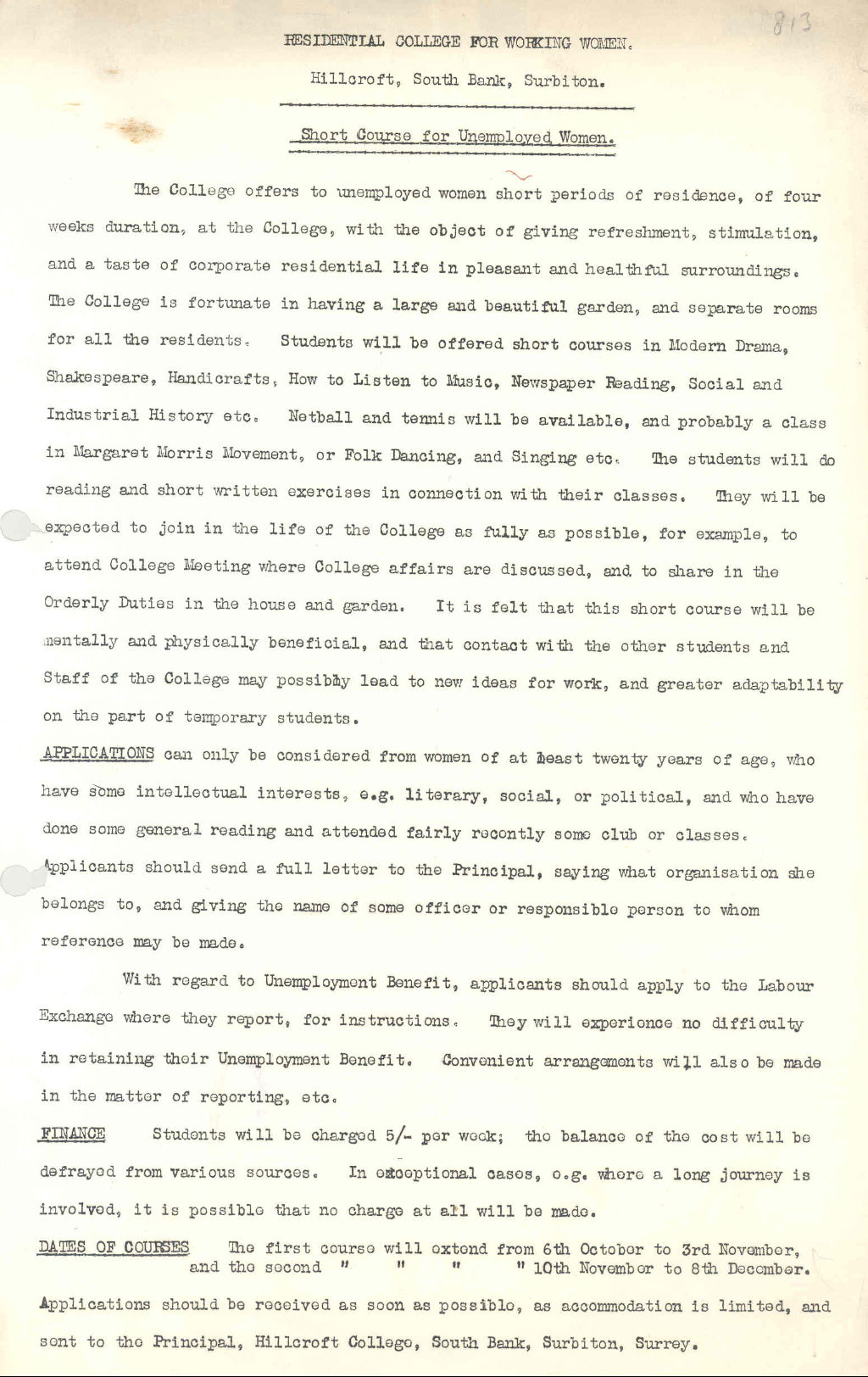
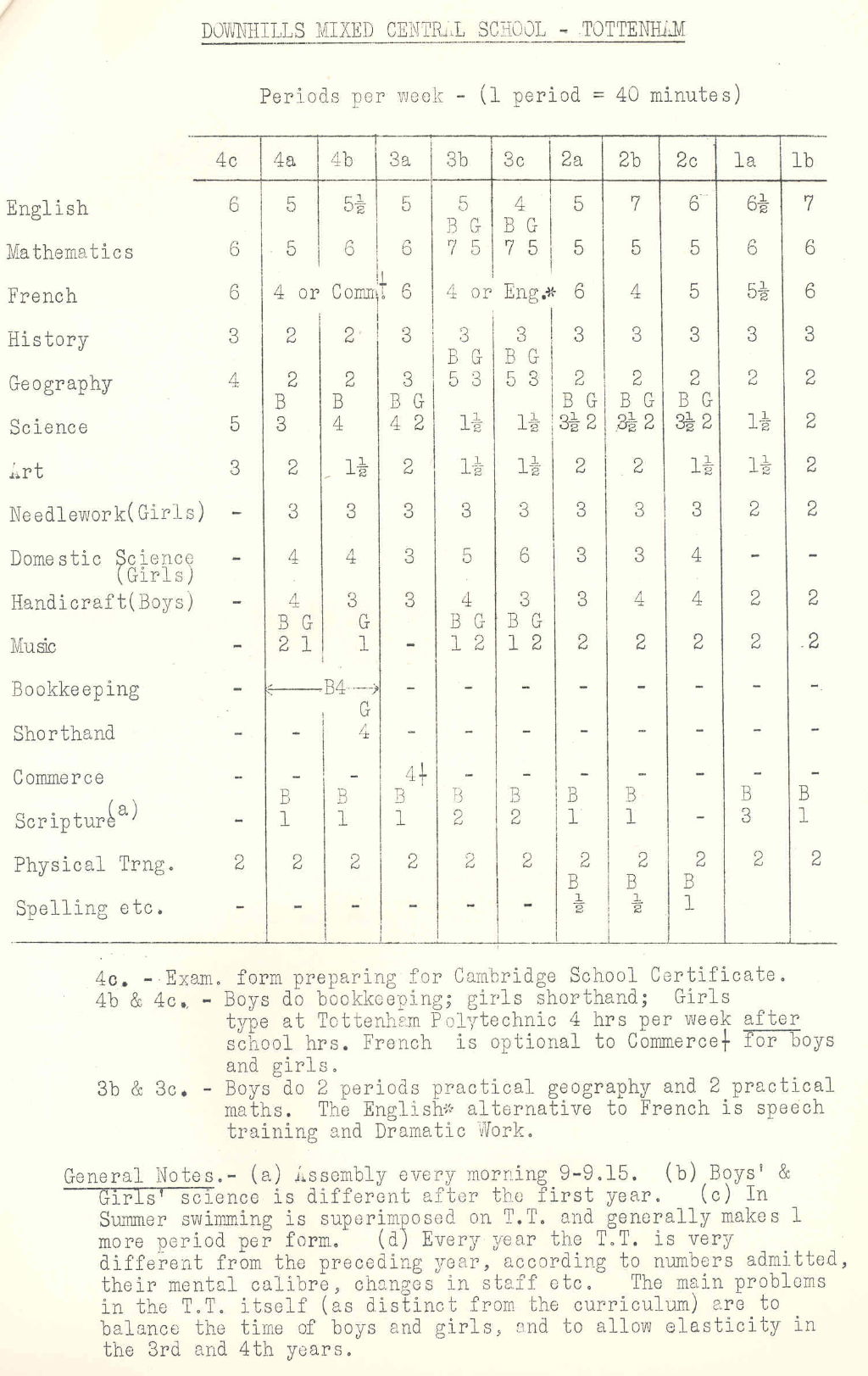
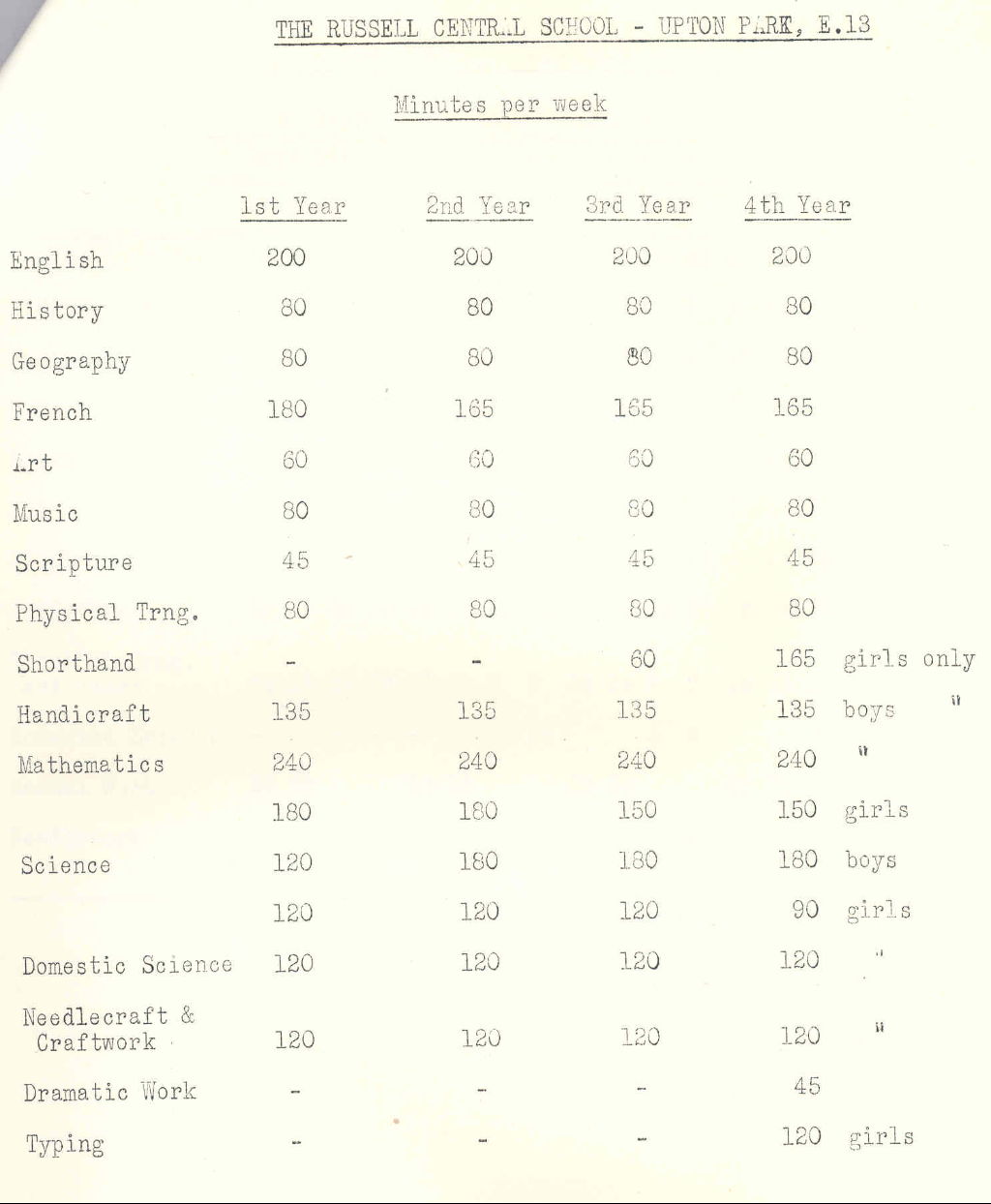
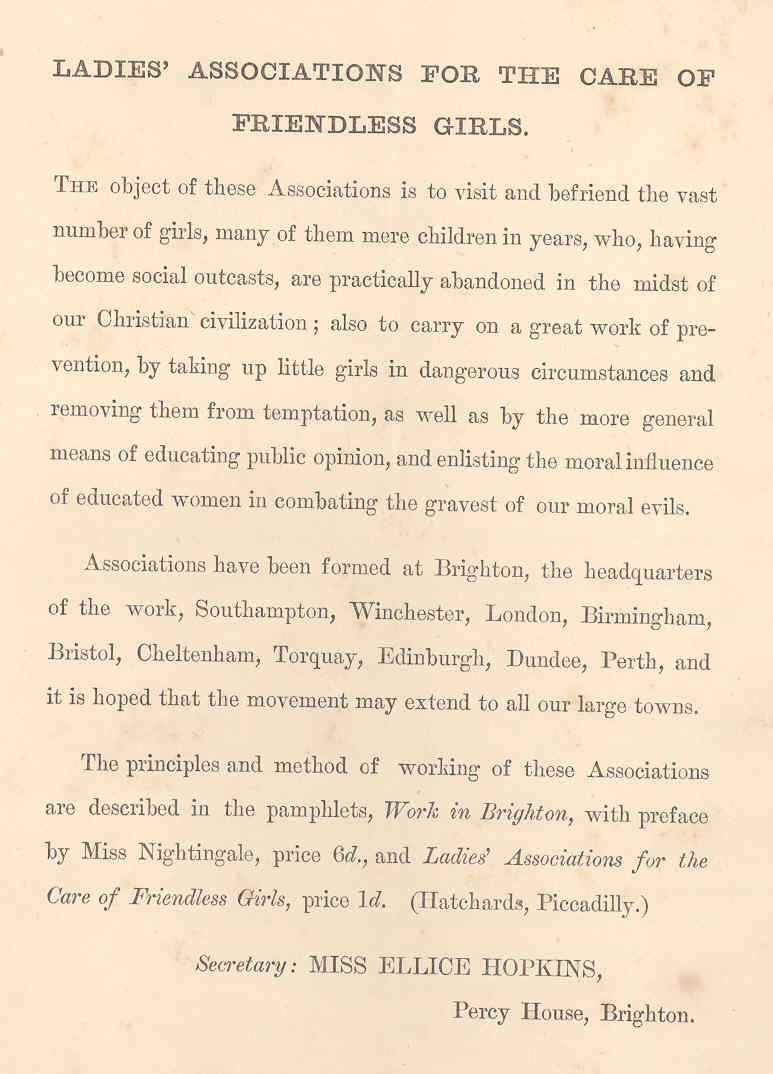
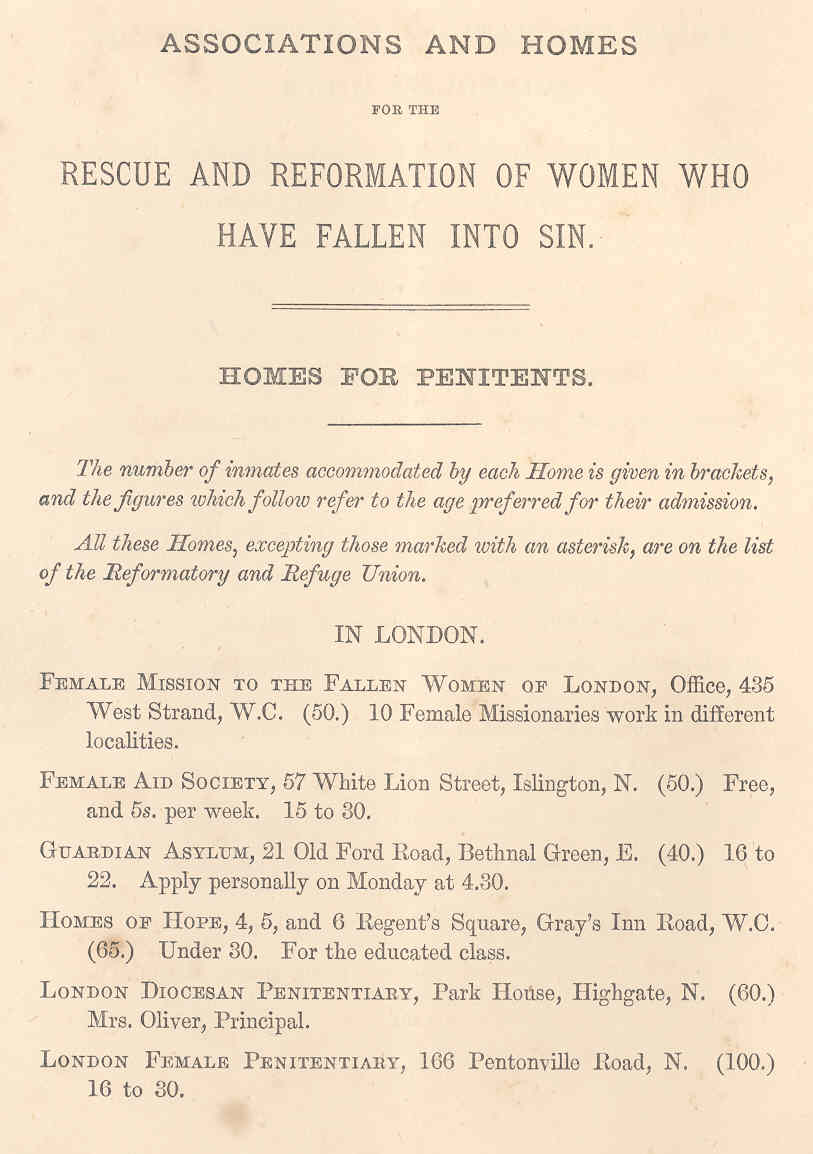
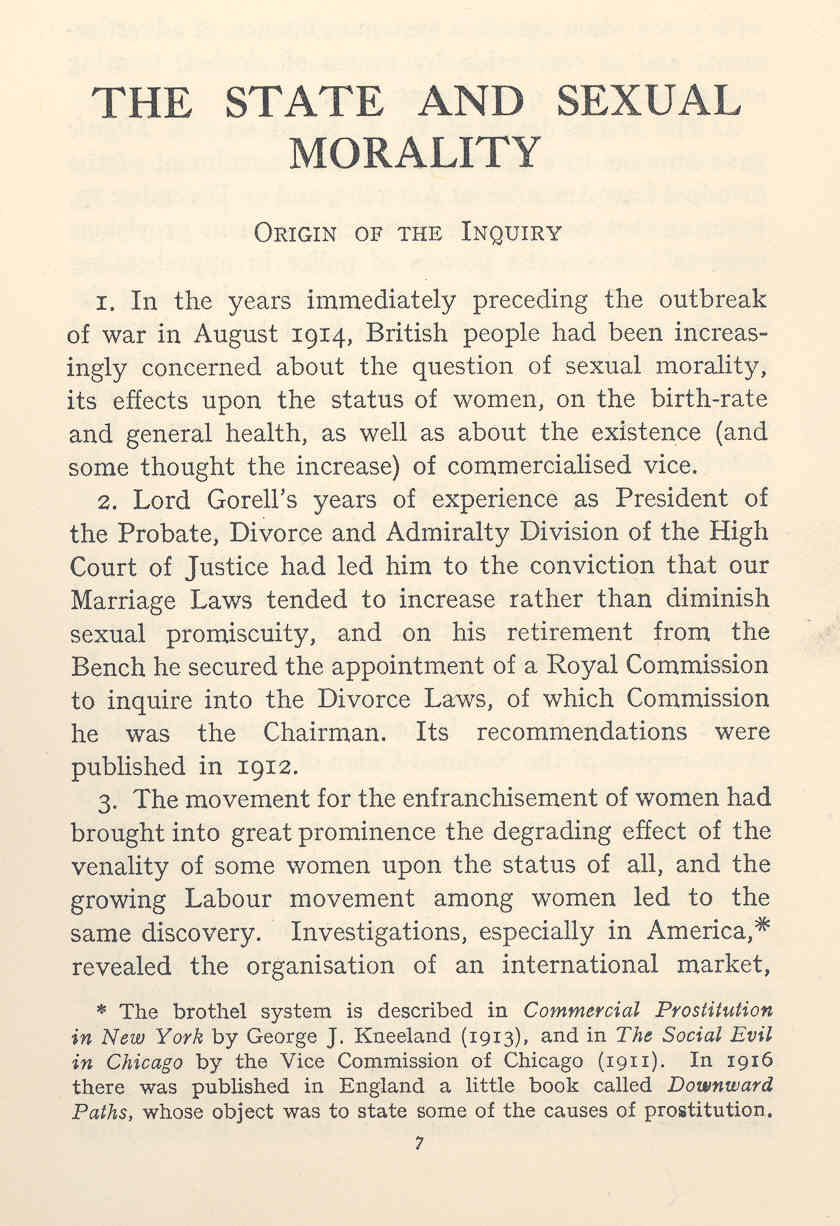
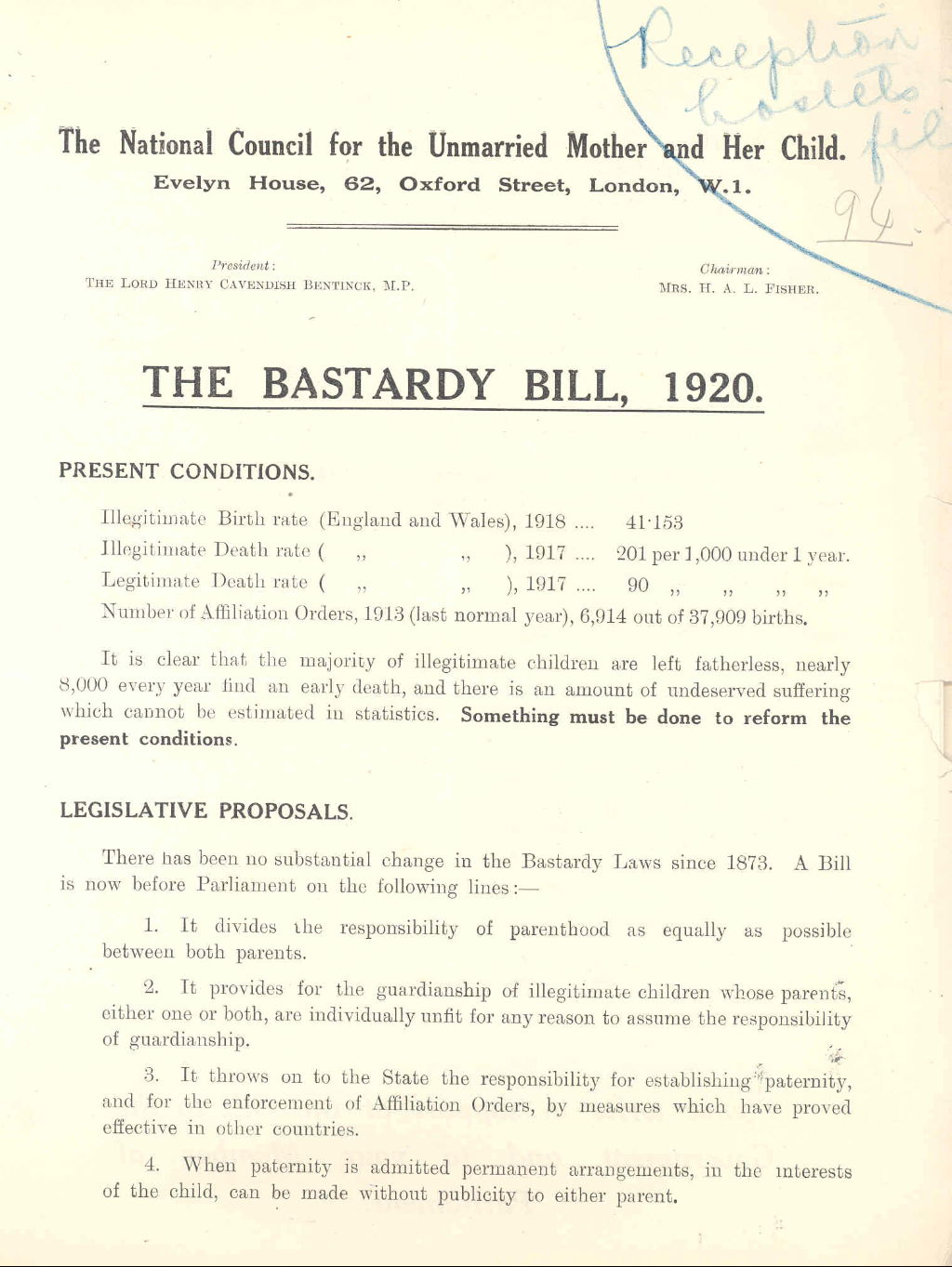
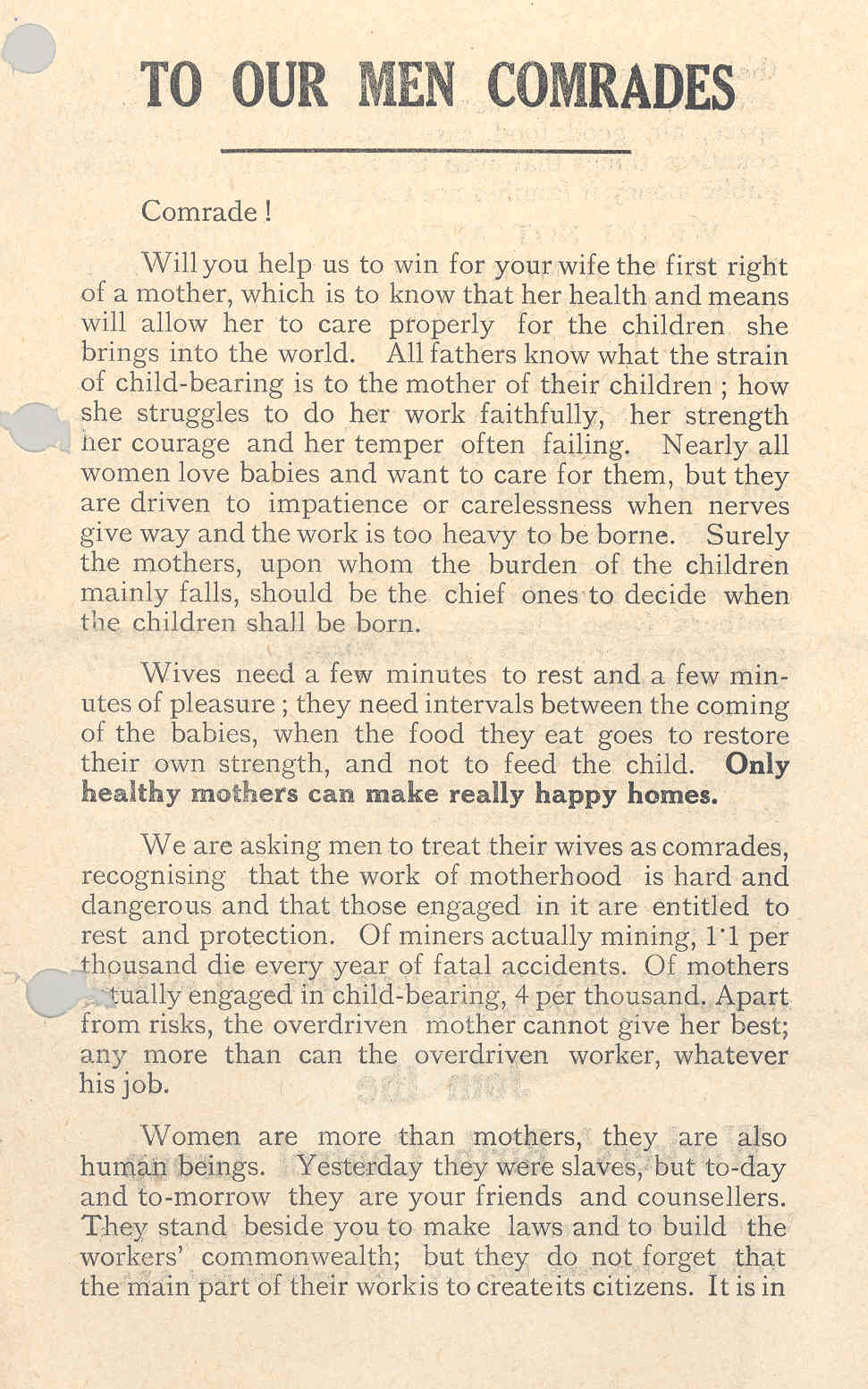
!['Some present day facts about 'Birth Control'', [c.1929]](790.4-1_i.jpg?)
!['Some present day facts about 'Birth Control'', [c.1929]](790.4-1_ii.jpg?)
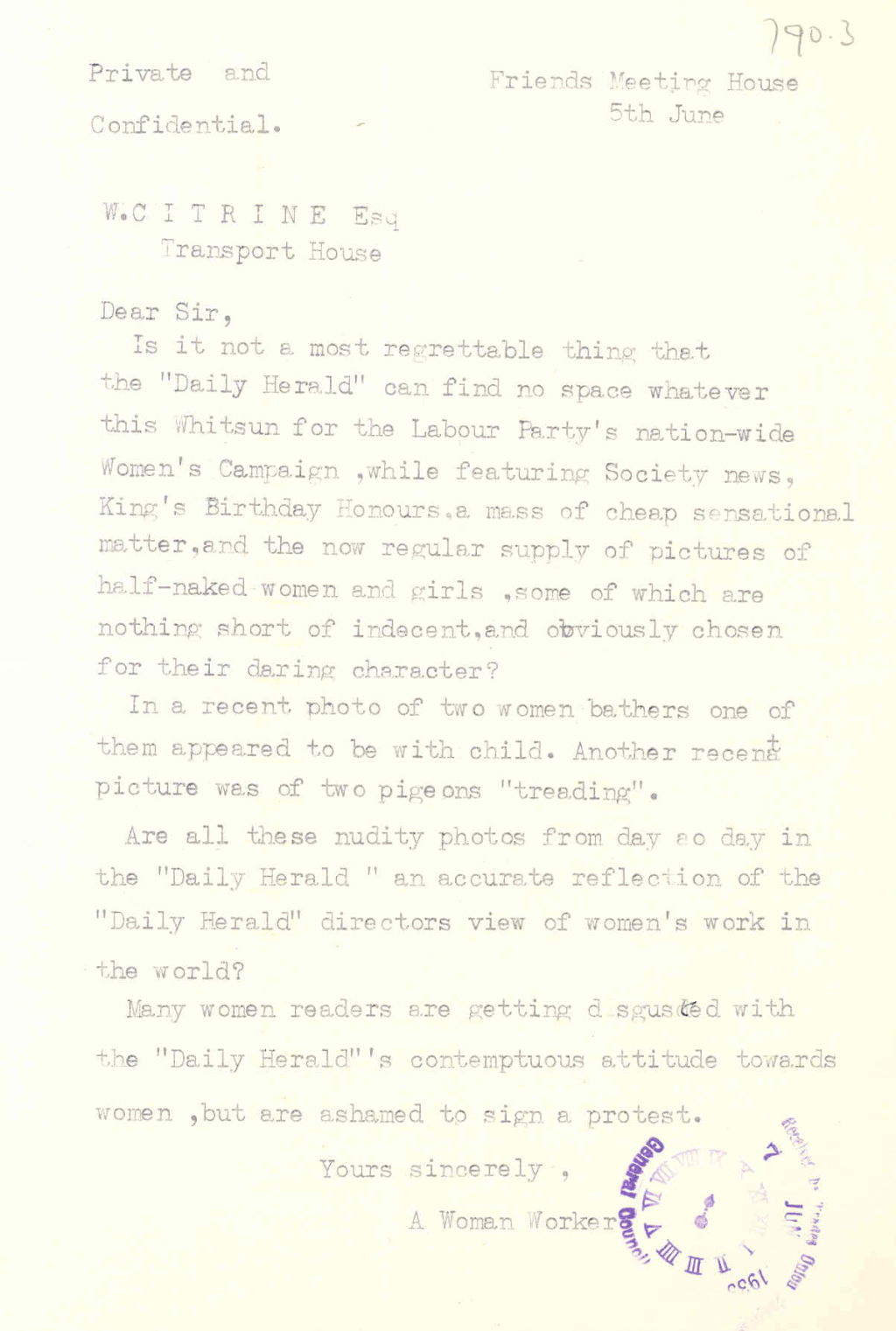
![Summaries of films circulated by the British Social Hygiene Council, [c.1937]](844.1-5_i.jpg?)
![Summaries of films circulated by the British Social Hygiene Council, [c.1937]](844.1-5_ii.jpg?)
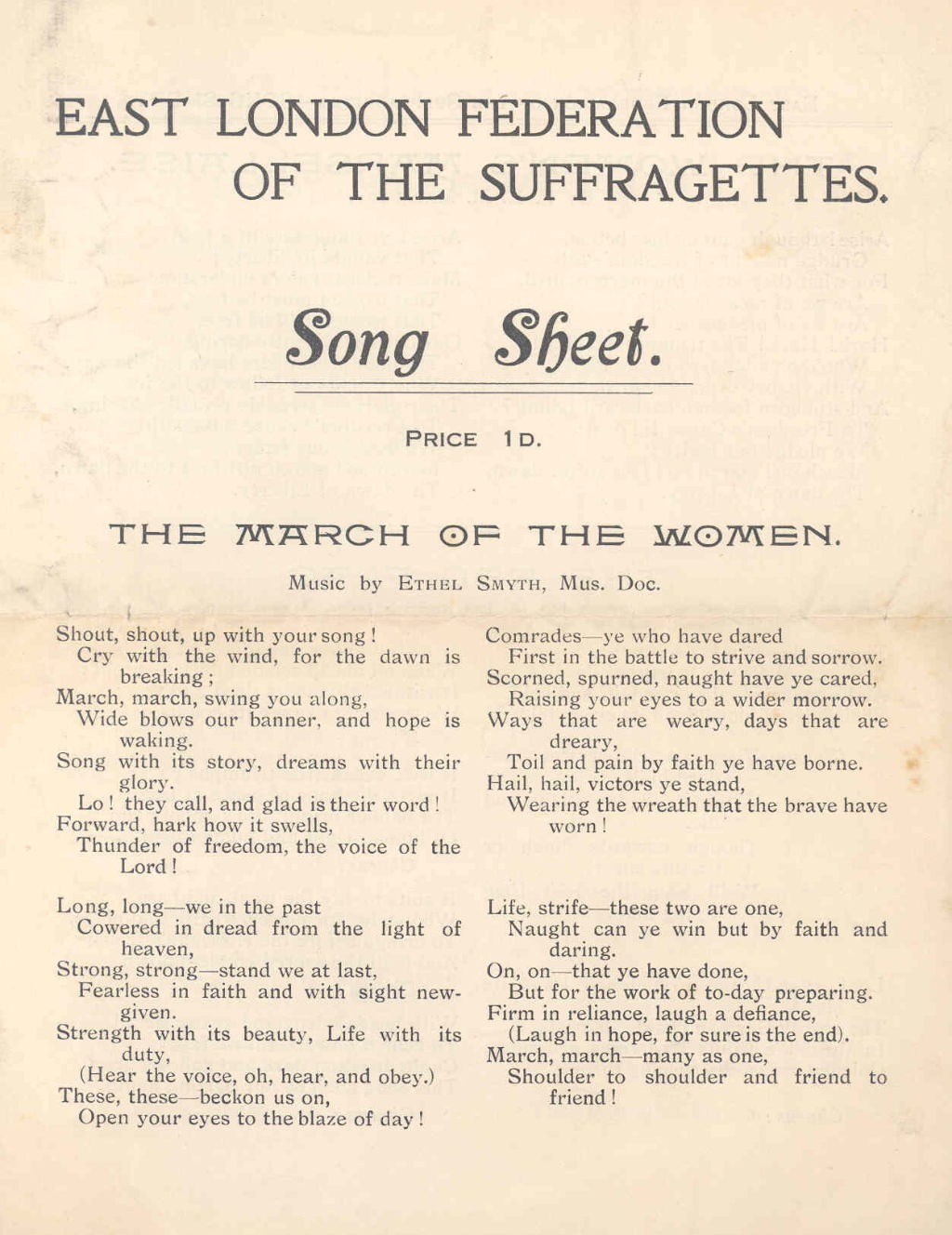
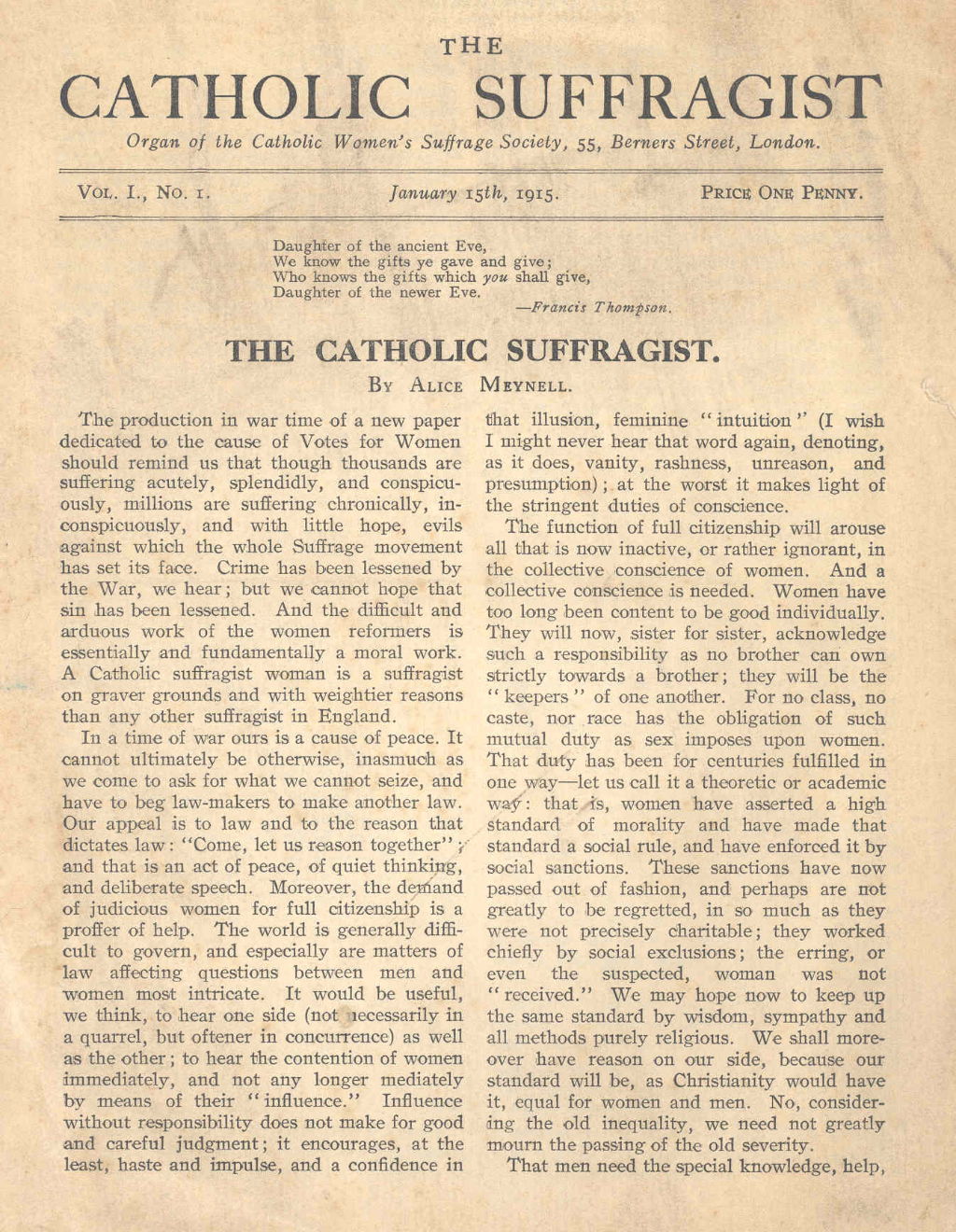
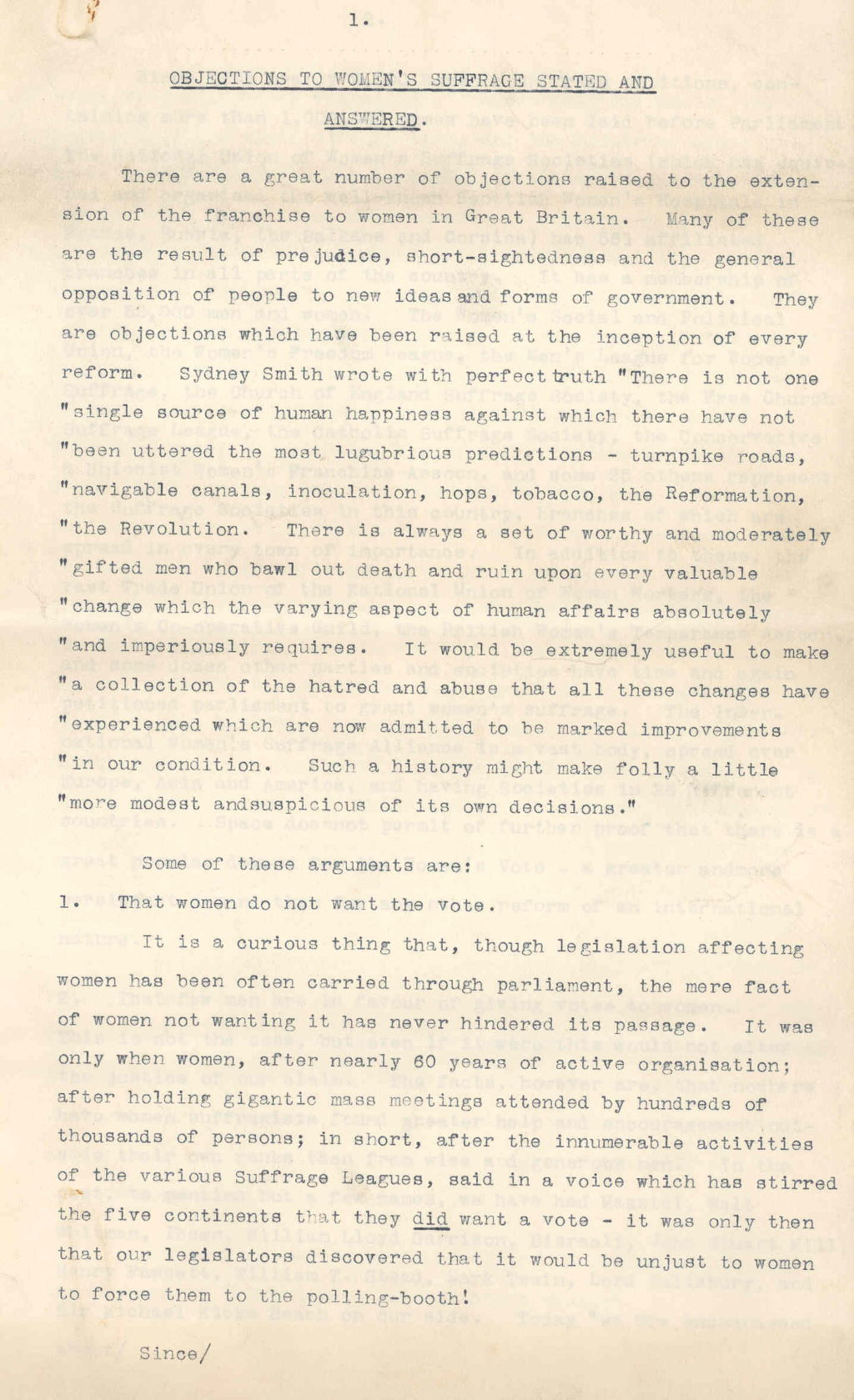
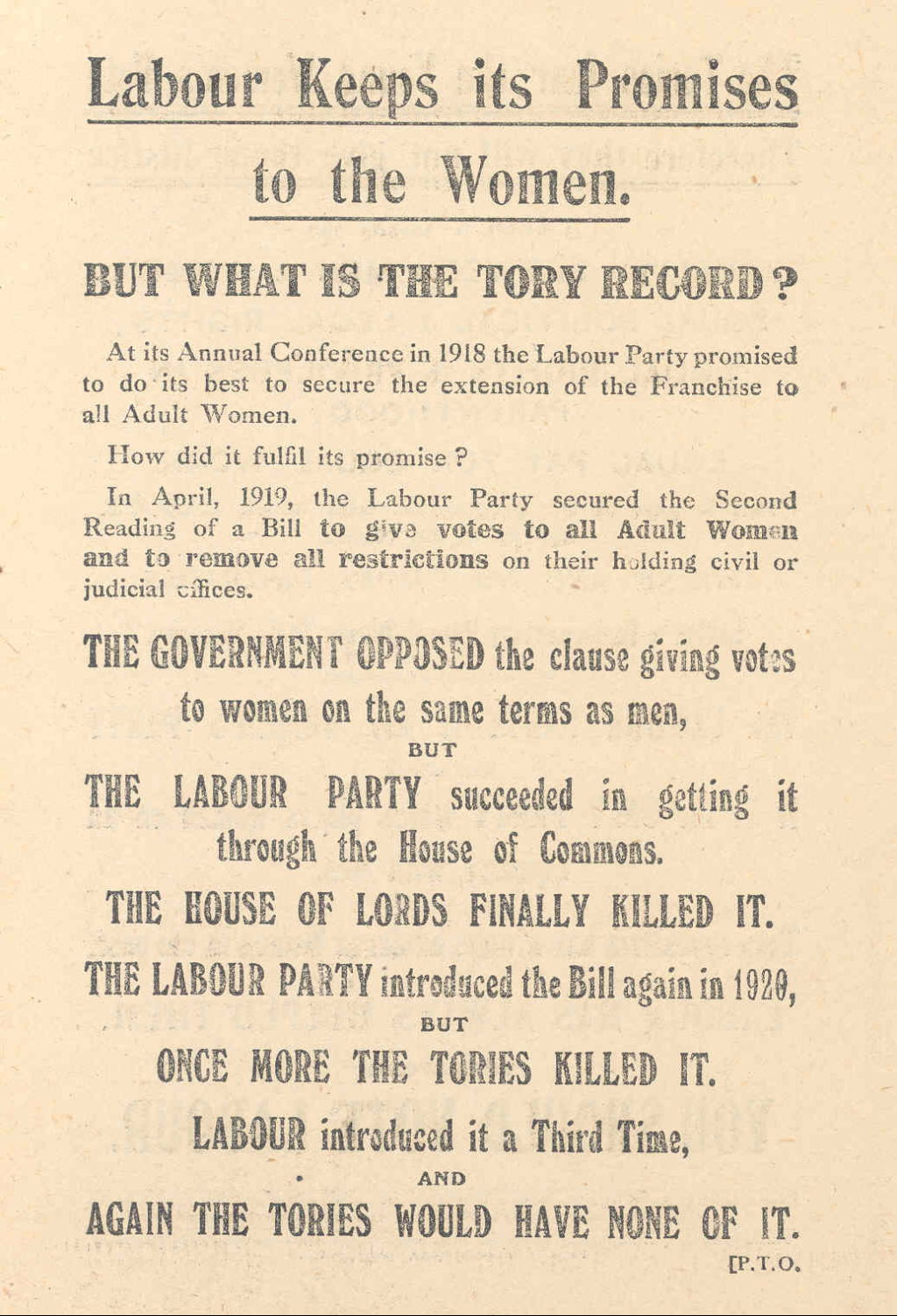
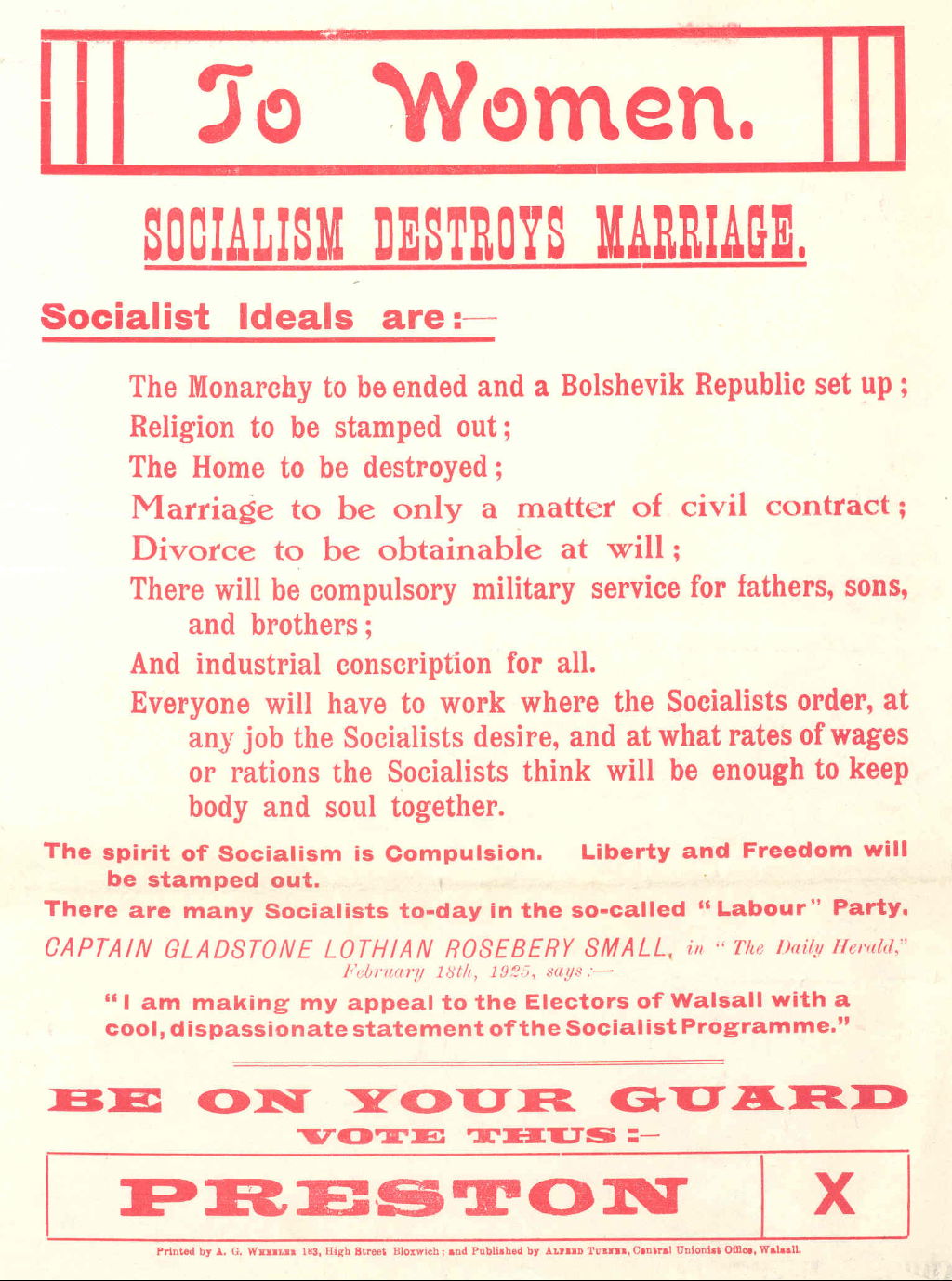
!['To working women', undated [1920s]](mss.420-bs-7-12-10.jpg?)
!['To working women', undated [1920s]](mss.420-bs-7-12-_10.jpg?)
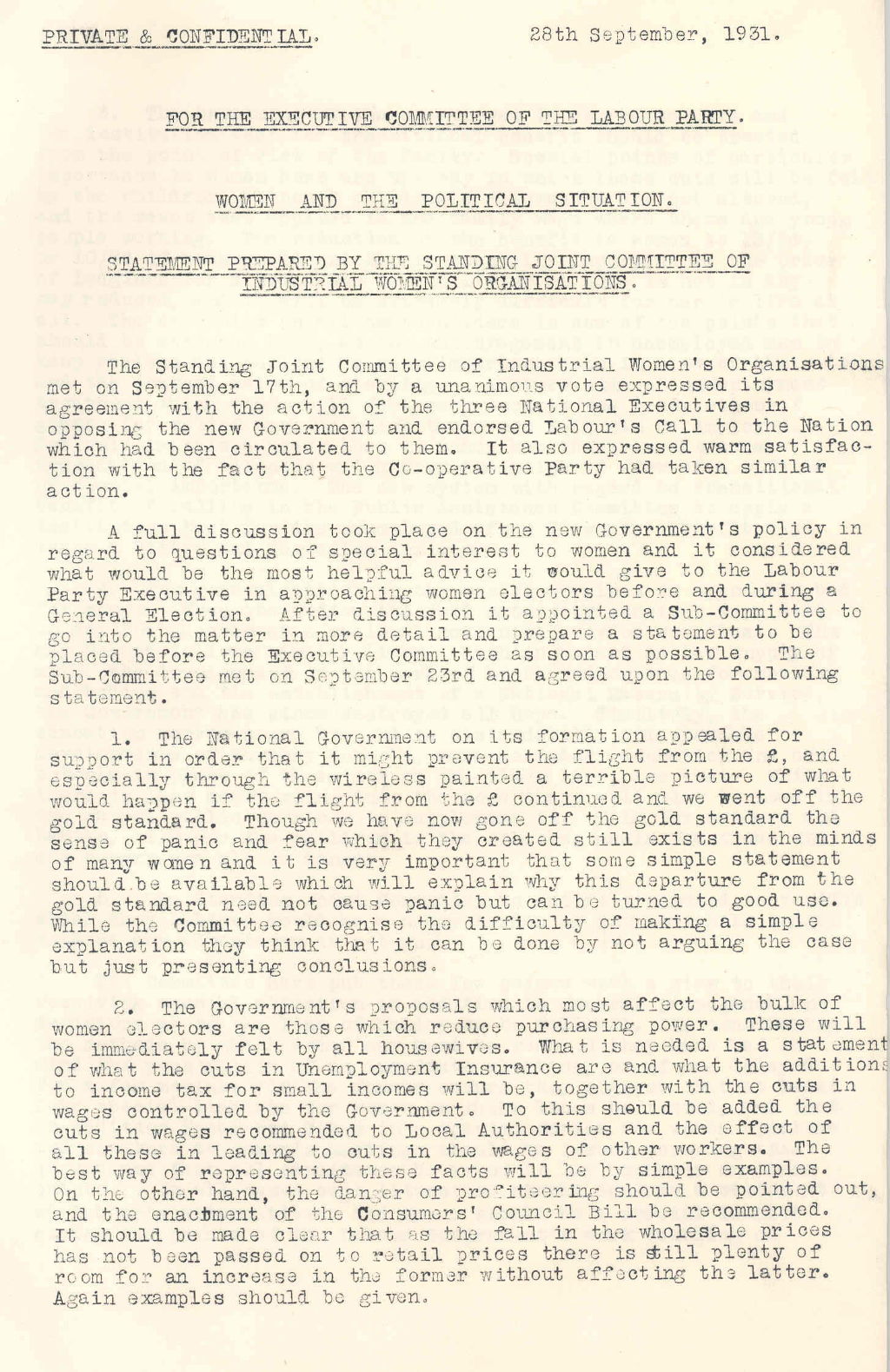
!['Women candidates', undated [late 1930s / early 1940s]](822-14.jpg?)
!['Patriotism of Women: Lord Kitchener's appeal', [1914]](243-64_i.jpg?)
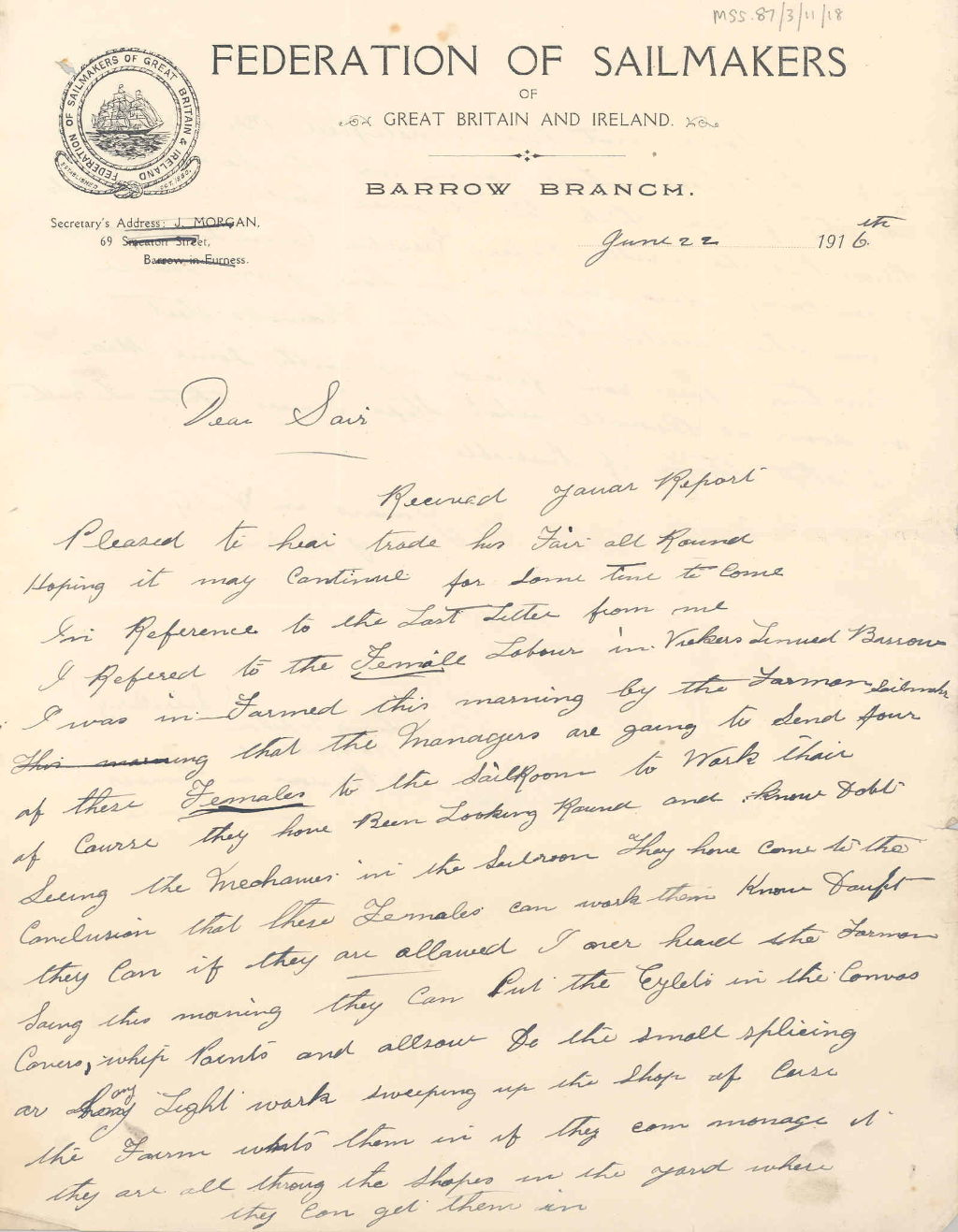
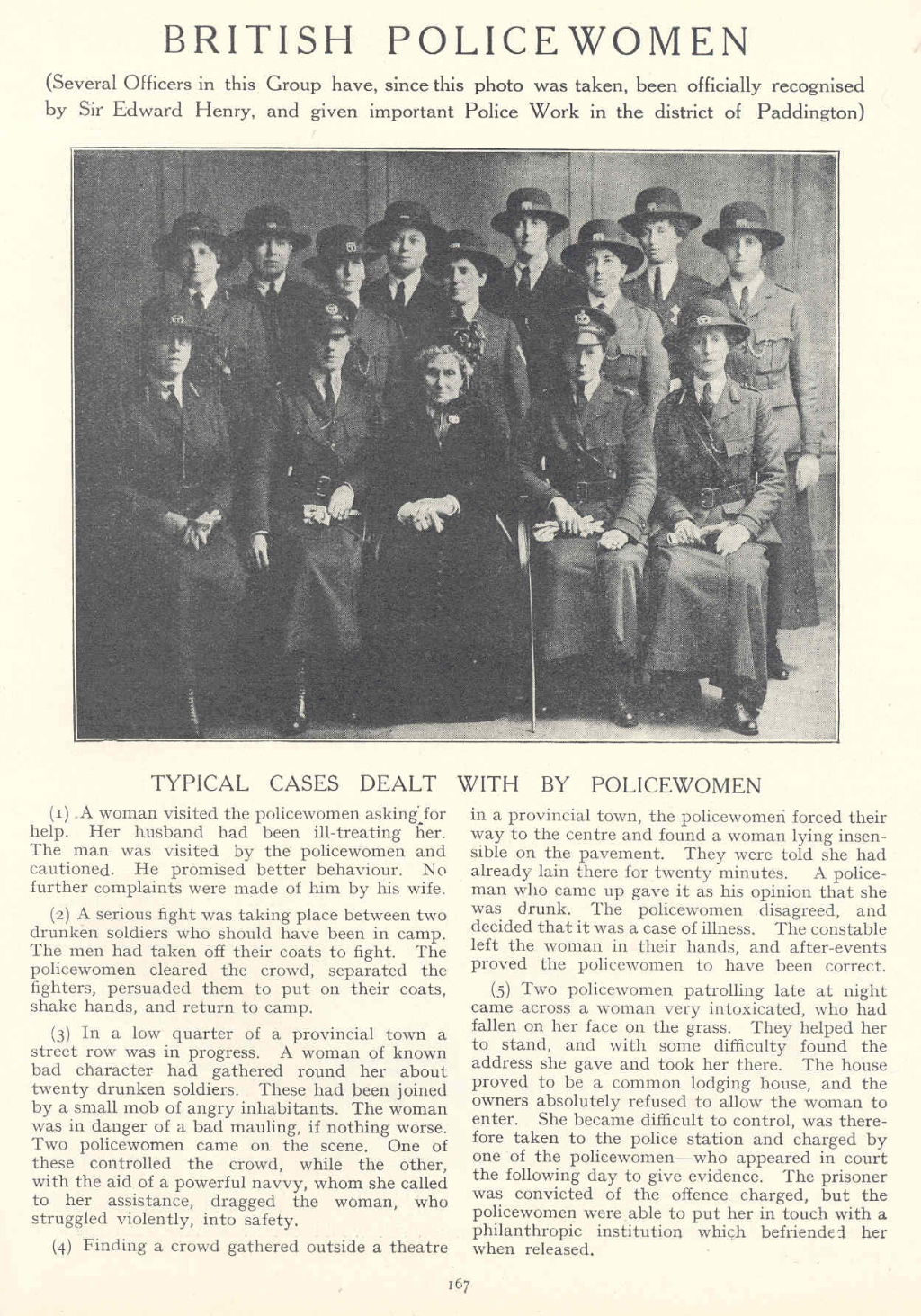
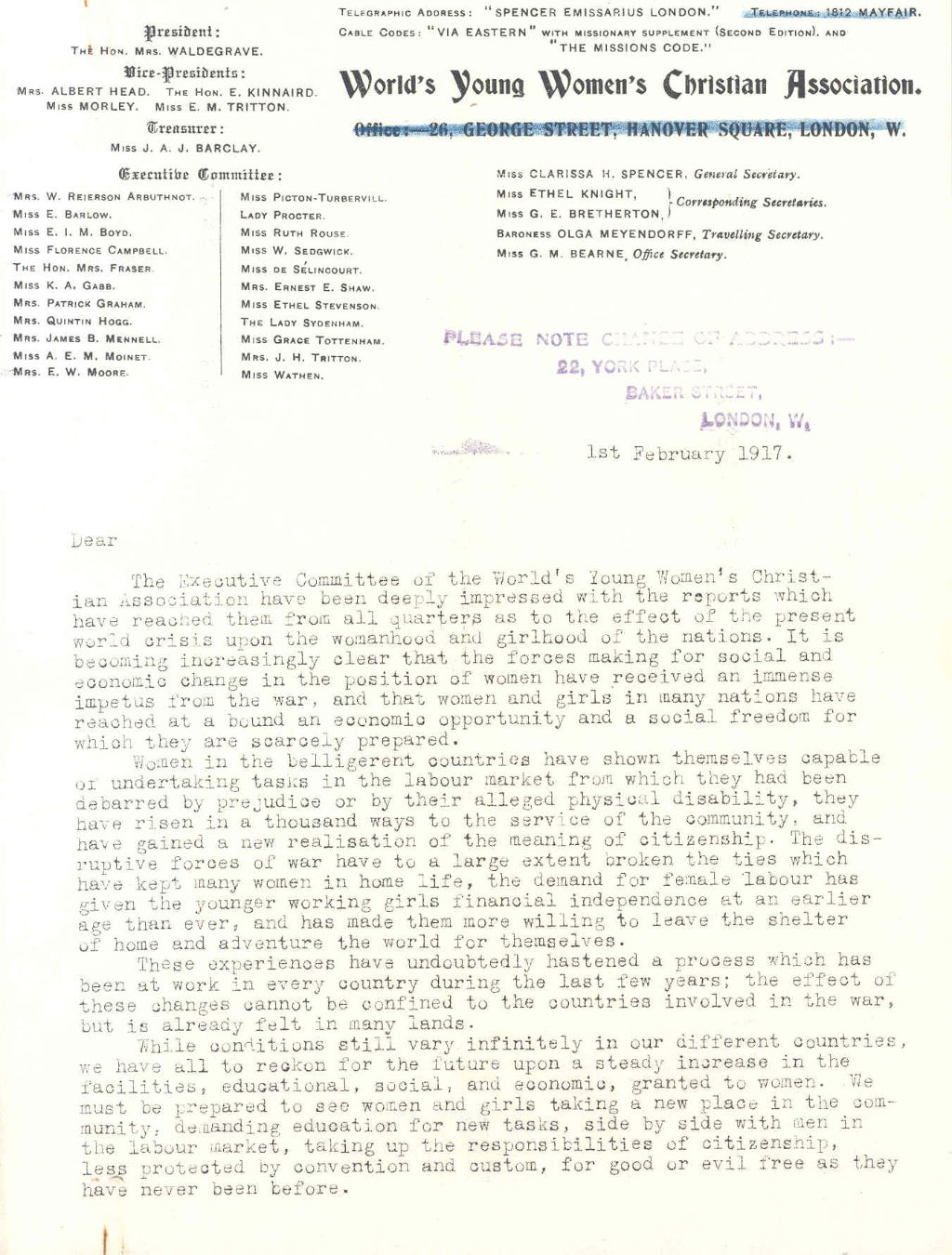
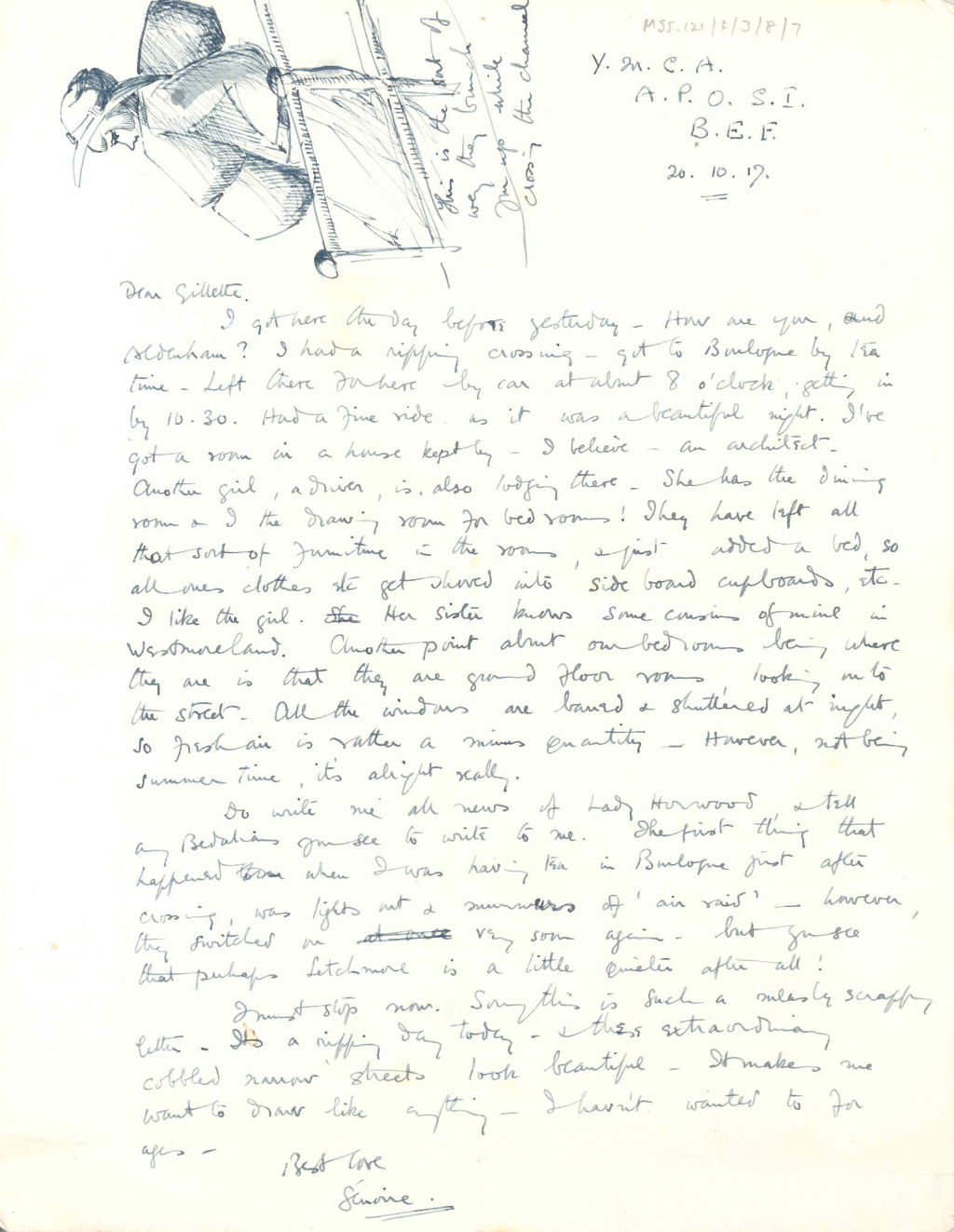
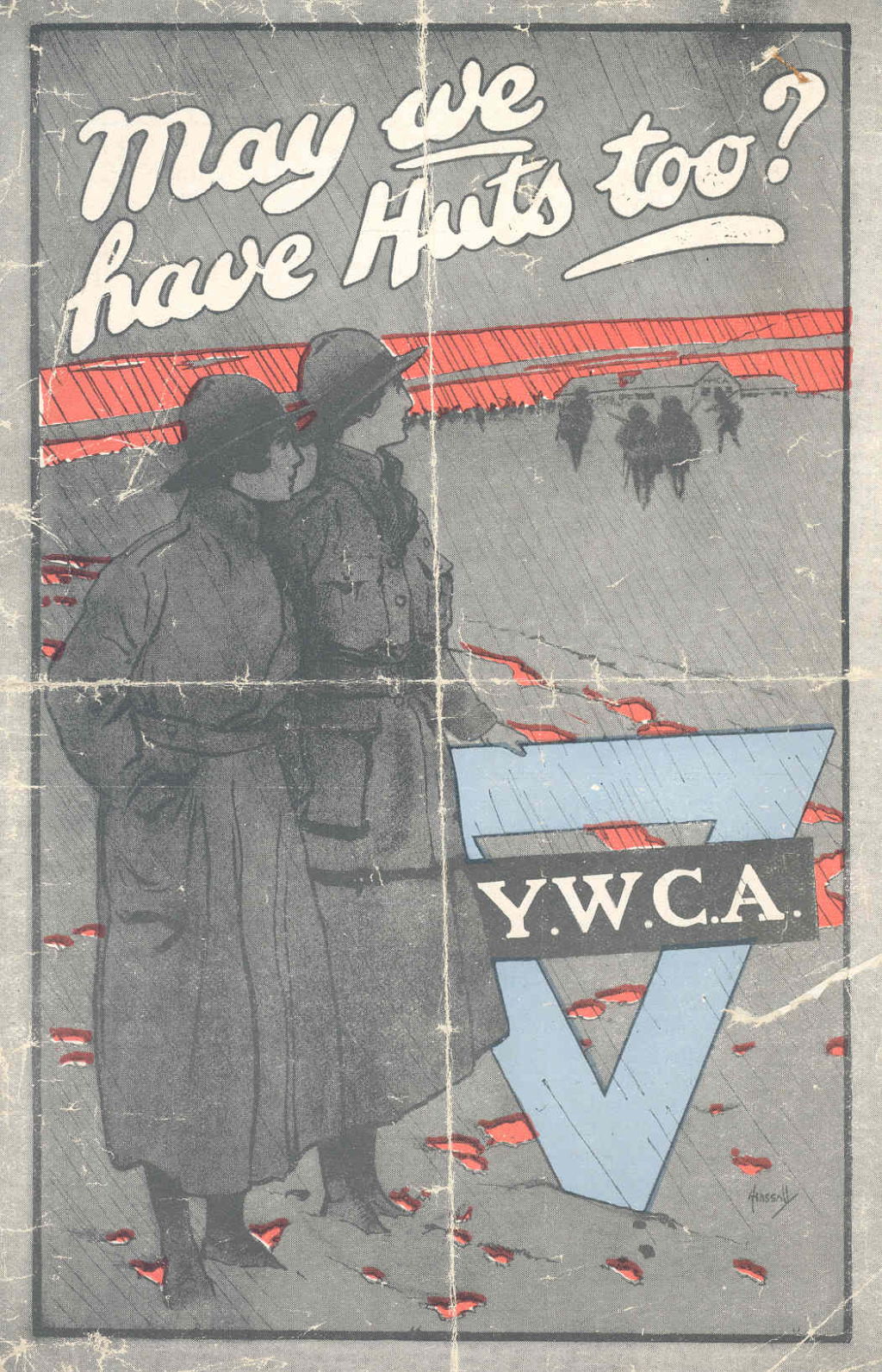
![Photographs of female munitions workers, Sheffield, [1918-1919]](97-5-37-1_ii.jpg?)
